
Speak Directly To a Lawyer Now
- Email This field is for validation purposes and should be left unchanged.
- State * QLD ACT NSW NT SA TAS VIC WA
- Date * DD slash MM slash YYYY
- Time : Hours Minutes AM PM AM/PM
- Comments This field is for validation purposes and should be left unchanged.

What Is A Conjugal Visit?
A conjugal visit is a designated period in which a prison inmate is allowed to be in private with a visitor. The visit allows extended, intimate contact, including sexual relations, between a prisoner and a visitor. In this way it is different to a supervised, regular prison visit, such as a contact visit, where hugging is permitted, and a non-contact “box” visit, where a screen separates the prisoner and visitor. The key aims of conjugal visits include preserving an inmate’s family ties, promoting the inmate’s reintegration into society on release, curbing recidivism and lessening prison violence. Victoria is the only state or territory in Australia which allows conjugal visits to prisoners.
Legislation
Section 38 of the Corrections Act 1986 states:
“(1) The Secretary may in accordance with the regulations by instrument approve contact visiting programmes under which a prisoner’s family and friends may visit and have physical contact with the prisoner.
(2) The Secretary may in accordance with the regulations by instrument approve residential visiting programmes under which a prisoner’s family may stay with the prisoner in the prison.”
In this section, “family” is defined as a “near relative” or any other person who has a long standing close personal relationship with the prisoner. “Near relative” is a partner, parent or grandparent (or a partner’s), child or grandchild (or a partner’s), or a sibling (or a partner’s).
Conjugal visits are run by Corrections Victoria , a unit of the Department of Justice and Community Safety, at five prisons: Beechworth, Fulham, Loddon, Marngoneet and Tarrengower. The visits are in two categories: one focuses on a prisoner’s intimate partner relationships and the other on their relationships with children.
To be eligible for a conjugal visit, an inmate must be a medium and minimum-security prisoner serving a sentence of at least 18 months. Visitors must be on an approved visitors list, which the prisoner compiles and which can have up to 10 names at any one time. The conjugal visits are conducted in a motel-type setting. Beechworth prison provides family visits at a dedicated property near the prison.
Should conjugal visits be allowed?
The debate over whether conjugal visits should be allowed depends on the lens through which the visits are viewed. The goals of imprisonment are generally recognised as retribution, deterrence, rehabilitation and protection of society – how do conjugal visits fit within this paradigm? Do inmates forgo their right to spend intimate time with loved ones on account of being in prison?
Proponents say that in prisons across the globe, conjugal visits achieve their key aims. Such visits are permitted in countries including Brazil, Canada, Russia and Germany. In several states in the United States, conjugal visits were instigated to lessen the strain on families caused by the long absence of a jailed parent. Prison authorities allow sexual relations which they say has an added benefit of preventing homosexuality in prisons and affairs by wives.
Supporters say conjugal visits are necessary for a humane prison system, and refer to the United Nations Standard Minimum Rules for the Treatment of Prisoners , which state:
“61. The treatment of prisoners should emphasize not their exclusion from the community, but their continuing part in it…
- Special attention shall be paid to the maintenance and improvement of such relations between a prisoner and his family as are desirable in the best interests of both.
- From the beginning of a prisoner’s sentence consideration shall be given to his future after release and he shall be encouraged and assisted to maintain or establish such relations with persons or agencies outside the institution as may promote the best interests of his family and his own social rehabilitation.”
They say prisons will remain unpleasant, and imprisonment will still confer a social stigma, even if conjugal visits are allowed.
Opponents say deprivation from contact should an accepted component of punishment for prisoners. They also point to the expense and administrative burden of allowing conjugal visits, such as the additional screening required of visitors and assessing the validity of marriages. Further, the fairness of allowing conjugal visits for some prisoners and not others has been questioned.
Safety concerns have also been raised. In Germany in 2010, an inmate murdered his girlfriend and attempted suicide during a visit. In the Australian Capital Territory, conjugal visits were established in 2011 but were scrapped after only 10 visits due to fears of compromised security.
Opponents also say it is important for public confidence that politicians do not appear soft on crime.
For advice on any legal matter, please contact Armstrong Legal .

This article was written by Sally Crosswell
Sally Crosswell has a Bachelor of Laws (Hons), a Bachelor of Communication and a Master of International and Community Development. She also completed a Graduate Diploma of Legal Practice at the College of Law. A former journalist, Sally has a keen interest in human rights law.
Penalty units (PUs) serve as the basis for calculating monetary fines for various law violations. The amount payable as a…
A sentencing council is an independent body, formed under legislation, designed to help promote consistency in sentencing by informing, educating…
The Biosecurity Amendment (Strengthening Penalties) Act 2021 came into effect in June 2021. The Act increased the penalties for 28…
Sydney Office
Level 8 66 Goulburn Street Sydney NSW 2000
Melbourne Office
Level 13 575 Bourke Street Melbourne VIC 3000
Brisbane Office
Level 5 95 North Quay Brisbane QLD 4000
Canberra Office
Suite 2, Level 6 17-21 University Avenue Canberra ACT 2601
Perth Office
Suite 207 22 St Georges Terrace Perth WA 6000
- Media coverage
- Courts We Attend
- Our Offices
- Prisons We Attend
- Police Stations We Attend
- Jimmy Singh
- Alex Istifan
- Emerson Lamarre
- Jackson Leavold
- Courtney Walker
- Leiming Zhu
- Edward Cullen
- Winston Terracini SC
- Margaret Cunneen SC
- Anthony Bellanto
- Clive Steirn
- Mitchell Paish
- William Brewer
- Luke Brasch
- Jack Tyler-Stott
- Sam Pararaja singham
- All Results
- Criminal Law Results
- Traffic Law Results
- Bail Applications
- Good Character Reference Sample for Assault Offences
- Good Character Reference Sample for Drug Offences
- Mental Health Defence
- Conditional Release Order
- Community Correction Order
- Intensive Correction Order
- Full Time Imprisonment
- Penalties for Commonwealth Offences
- Representing Yourself in Court
- Section 10 Dismissal
- Apology Letter for Court
- Apprehended Violence Orders (AVO)
- Assault Occasioning Actual Bodily Harm
- Assault Police
- Attempt To Choke
- Common Assault
- Custody Of Knife In Public
- Failure Of Parent To Care For Child
- Grievous Bodily Harm Or Wounding With Intent
- Offensive Language Or Conduct
- Reckless Grievous Bodily Harm Or Wounding
- Resist And Obstruct Police
- Stalk Or Intimidate
- Use Carriage Service To Threaten
- Aggravated Break And Enter
- Break And Enter To Commit Serious Indictable Offence
- Enter Dwelling House
- Child Sexual Offences
- Domestic Violence
- Cultivate Prohibited Plant
- Drug Manufacture
- Drug Possession
- Drug Premises
- Drug Supply & Importation Charges
- Drug Supply On ‘Ongoing Basis’
- Import Or Export Border Controlled Drug
- Possession Of Border Controlled Drug
- Causing Danger With Firearm Or Speargun
- Dangerous Use Of Firearm Or Speargun
- Firing At House Or Building
- Make Or Supply Explosive
- Possession Of Dangerous Articles Other Than Firearms
- Possession Of Unregistered Firearm In Public
- Safe Keeping Of Firearms
- Unauthorised Possession Of Firearm In Aggravated Circumstances
- Unauthorised Possession Or Use Of Firearms
- Unauthorised Possession Or Use Of Prohibited Firearms
- Unregistered Firearms
- Centrelink Fraud
- Dealing With Property Suspected Proceeds Of Crime
- Embezzlement
- False Or Misleading Document
- Intention To Deceive
- Intention To Defraud By Destroying Accounts
- Intention To Defraud By False Or Misleading Statement
- Larceny By Servant Or Clerk
- Money Laundering
- Obtain Financial Advantage Or Property By Deception
- Possession Of Forged Document
- Hinder Police Investigation
- Intentionally Or Recklessly Damage Property
- Manslaughter
- Perverting Course Of Justice
- Possess House Breaking Implements
- Armed Robbery Or Robbery In Company
- Armed Robbery With Wounding
- Goods In Custody
- Receive Stolen Goods
- Robbery With Wounding
- Aggravated Indecent Assault
- Aggravated Sexual Assault
- Aggravated Sexual Assault In Company
- Assault With Intent To Have Sexual Intercourse
- Indecent Assault
- Filming Person Engaged In Private Act
- Filming Persons Private Parts
- Terrorism Charges
- Unlawful Entry Onto Inclosed Lands
- White Collar Crimes
- Good Character Reference Sample for Drink Driving Offences
- Good Character Reference Sample for Driving Offences
- Penalties for Traffic Offences
- Aggravated Dangerous Driving Occasioning Death
- Aggravated Dangerous Driving Occasioning Grievous Bodily Harm
- Dangerous Driving Occasioning Death
- Dangerous Driving Occasioning Grievous Bodily Harm
- Drink Driving
- Drive While Unlicensed Or Never Licensed
- Drive Whilst Disqualified Or Suspended
- Drug Driving
- Failing To Stop And Assist After Impact
- Furious Or Reckless Driving
- Habitual Offender Declarations
- Negligent Driving
- Police Pursuit
- Predatory Driving
- Red Light Cameras
- Removal Of Licence Disqualification
- Licence Appeal RMS Suspension
- Speeding Suspensions
- Street Racing
- Traffic Offenders Program
- Dangerous Driving Offences
- Speeding Offences
- Client Reviews
Conjugal Prison Visits in Australia
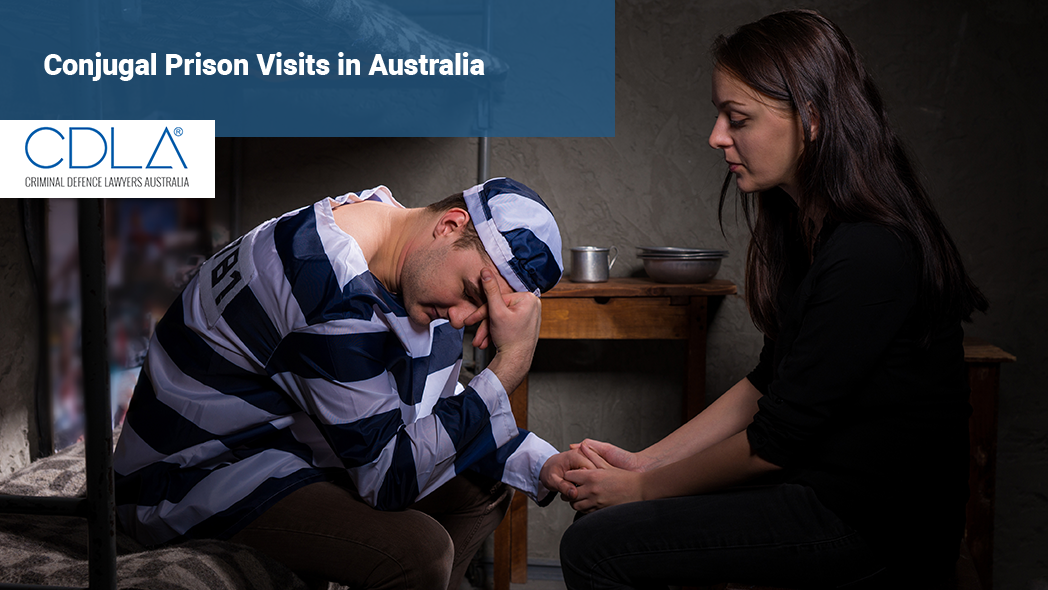
Key Takeaways
Conjugal visits in australia, conjugate vs conjugal, are you allowed to visit your partner | conjugal visits in prison, define inmate | inmate meaning, conjugal rights, australian prison conditions | prisoners’ rights in australia, south australian prisons, prisons in wa, corrective services nsw training, should all australian prisons allow conjugal visits.
Share This Article
Conjugal prison visits in Australia are permitted only in the State of Victoria. Every other State and Territory do not allow conjugal visits. Here we explain the meaning of a Conjugal visit, whether it should be allowed in all prisons, and the rules of conjugal visits.
The entire purpose of a conjugal visit is essentially to reduce reoffending for purposes of community safety.
Conjugal visits in jail are pre-arranged private prison visits when an inmate in prison is allowed to spend private time with a visitor, usually his/her partner. These are commonly referred to as a conjugal prison visit during which time prisoners are allowed to have sex with their spouse or partner. All States and Territories, except Victoria, prohibit conjugal visits to inmates. Conjugal visits in NSW are therefore not permitted for prisoners.
The main purpose of a conjugal visit is to allow and maintain an inmate’s family connections, which also assists in reintegration back into the community upon release from custody and ultimately reducing the chances of reoffending (recidivism). The overall impact of this is meant to make the community a safer less violent place.
Conjugal Visits Victoria | Conjugal Visit Rules
Can you visit your partner in Victoria? In Australia, Victoria is the only state in our nation that permits conjugal visits in Australian prisons subject to the conjugal visit rules. Section 38 and Section 37 Corrections Act 1986 (Vic) permits these sorts of visits for prisoners within Victoria, subject to conditions.
Section 37 allows a relative or friend who visits a prisoner to see and speak with the prisoner but is not allowed to touch the prisoner unless the visit is part of a contact visiting programme or residential visiting programme.
There are two main types of conjugal visits in Victoria, namely, the first is for an intimate partner relationship between the prisoner and his/her partner. The second is centred around the prisoner’s children.
Corrections Victoria may permit an inmate to have a conjugal visit in any of the following prisons:
- Tarrengower Prison
- Marngoneet Prison
- Loddon Prison
- Fulham Prison
- Beechworth Prison
In order to be eligible for a conjugal visit, amongst the conditions required, the following conditions must be met:
- The prisoner is either a medium or minimum security inmate,
- The prisoner is serving an imprisonment sentence of 18-months or more,
- The visitor has been screened and part of the prison’s approved visitor list.
How to Find Out If Someone is in Jail Victoria
Corrections Victoria can disclose to any member of the public as to whether a prisoner is in jail, and which prison he/she is an inmate in. Corrections Victoria will not disclose any more details than that. This means, they will not tell you if the person is under supervision in the community or any other contact details.
Corrections Victoria will first need consent from the prisoner or inmate before disclosing information about the prisoner to anyone else, except for court proceedings.
Corrections Victoria can disclose a prisoner’s information to the prisoner’s lawyer.
In order to access more personal information of a prisoner must be accessed through a freedom of information request. This can also be done online.
Define Conjugal Visit | Conjugal Visit Meaning
The visit explained: ‘Conjugal’ by its definition alone relates to marriage or the relationship between a couple and includes their sexual relationship. Therefore, a conjugal visit for a prisoner in jail is where the prisoner is allowed to have his/her partner visit them in jail for private time, which also permits them to have sex in jail.
Conjugal property on the other hand refers to a married or defacto couples property or assets. This may include property or assets acquired prior to or during the relationship.
To explain the difference between ‘conjugate’ and ‘conjugal’, ‘conjugate’ on the one hand is 2 or more things joined together. This can include when two people get married, they become one. On the other hand, ‘conjugal’ (sometimes misspelt as ‘congical’) is an adjective describing all matters relating to marriage. These matters include the sexual relationship of a couple.
All prisoners who’re in jail are generally allows to be visited by their partner, family and friends in Australia. Each prison or correctional centre will have their logistical ways for people to book a prison visit. In contrast to a ‘normal’ prison visit, a conjugal visit allows the inmates partner or de-facto to visit and have sex while they are in prison during a pre-arranged private meeting time.
Definition of an ‘inmate’ is a person who is incarcerated or confined in a correctional centre, commonly referred to a prison or prison hospital. An inmate can end up being confined in a jail because of being bail refused as a result of serious criminal charges, in which case he/she will be an inmate during the court process until the case finalises. On the other hand, an inmate can end up being imprisoned as a result being sentenced for a serious criminal offence.
Conjugal rights commonly refer to the rights, including sexual relations, that are exercisable by each partner or spouse in a relationship under law. It is often referred to as rights created by marriage and extends to other rights including property and assets.
Victoria is the only state in Australia that permits conjugal prison visits for prisoners as a conjugal right. All other states and territories do not recognise nor permit conjugal visits for inmates in their prisons.
The Australian Human Rights Commission (AHRC) information sheet outlines some of the issues concerning human rights in respect to prisoners or inmates in Australian prisons, Australian jail conditions and life in Australian prison. It also suggests how these human rights issues can be addressed.
Prisoners are inherently deprived of their liberty to be free in society. As a result, it makes an inmate vulnerable to discrimination and other human rights violations within the prison by other inmates and prison staff. This is especially so for juvenile inmates.
The AHRC reports that prison conditions within Australian prisons have significant human rights concerns, including the following:
- Being placed in cells with other inmates they don’t feel safe with
- Insufficient or inadequate mental health or physical health services. Being in solitary confinement, for example, exacerbates these issues.
- Overcrowded conditions within some Australian prisons. The UN Human Rights Committee discovered inhuman treatment of an Aboriginal juvenile in a NSW prison. It found that a juvenile was put into isolation in an adult jail, exposed to artificial light for prolonged periods of time, and had some of his clothes removed.
- Insufficient access to rehabilitation programs concerning alcohol and drugs, including harm minimisation programs. This leads to a high level of blood-borne virus transmissions.
- Insufficient access to education services.
Some prison monitoring systems do exist in states and territories. However, there is no national standards for monitoring prison conditions and juvenile detention centres. To address this, our nations’ Government has expressed intentions of ratifying the Optional Protocol to the Convention Against Torture and Other Cruel, Inhuman and Degrading Treatment (OPCAT). This would create a national preventative way to monitor prison conditions across all prisons in Australia, in order to prevent human rights violations of inmates.
Otherwise, there are within each state and territory, anti-discrimination bodies, ombudsmen, and interna prison procedures to lodge complaints of such human rights violations. Federal prisoners can lodge a complaint directly to the Australian Human Rights Commission concerning human rights violations. However, even if the commission finds a human rights violation, its recommendations are not legally enforceable.
South Australia has a total of 9 prisons outlined in the above table.
Of the above 9 prisons, Adelaide Women’s Prison, Adelaide Pre-Release Centre, Port Lincoln Prison and Cadell Training Centre are focused on reintegration for prisoners before being released back into the community.
The Department of Justice in Western Australia (WA) operates and manages 17 prisons. These prisons include prison farms that provide various security classifications from minimum, medium to maximum security.
In addition, the following are minimum security prison work camps:
- Warburton Work Camp for Men
- Wyndham Work Camp for Men
- Walpole Work Camp for Men
- Roebourne Work Camp for Men
- Dowerin Work Camp for Men
Corrective Services NSW contains the Brush Farm Corrective Services Academy which provides specialised quality training to prison staff and external clients. its purpose is to increase the effectiveness and skills of corrective services staff. The academy is considered leaders in correctional training for Corrective Services NSW.
They offer a wide range of training services, including Aboriginal Cultural Awareness Training, Case Management and Report Writing, Correctional Officer Training, Mental Health Awareness, Security Awareness training and Working with Sex Offenders training.
On the one hand, conjugal visits arguably increase the community safety by facilitating the ability of inmates to maintain family relationships, improved mental health, reduction in violence within prisons, easier re-integration into the community upon release from custody and maintenance of fundamental human rights by creating a more humane prison system. These factors all lead to a reduction in the likelihood of reoffending relevant to rehabilitation and community safety.
On the other hand, conjugal visits are frowned upon for the following reasons:
- Deprivation of intimacy for offenders in prison is an inherent part of the punishment.
- High level of resources, money and time goes into facilitating a conjugal visit for prisoners, placing arguably an undue strain on the system.
- Some prisoners miss out on getting a conjugal visit while others do, is something that creates a sense of unfairness.
- Safety concerns of visitors and inmates due to the physical contact nature of these visits.
- The appearance or perception of coming across as ‘soft on crime’ impacting public confidence in the elected Government.
For more, here is another article on the offence and penalties of smuggling drugs into prison in NSW
"> --> What can you do and not do in a Conjugal Visit? Sex?
A prisoner and his/her partner can get intimate and have sex during a conjugal visit. The visit occurs in a motel-type setting with the same levels of privacy.
"> --> Does Australia Allow Conjugal Visits?
Victoria is the only State that allows conjugal visits in prisons. All other States and Territories do not allow conjugal visits.
"> --> What is a Conjugal Visit?
A conjugal visit is when a prison allows its prisoners to get sexually intimate with their partner’s during a prison visit, subject to rules and conditions that must be complied with. A conjugal visit also allows a prisoner to have contact visits from their children during a prison visit.
"> --> Do you have to be Married for Conjugal Visit?
A prisoner does not have to be married to be allowed to have a conjugal visit with their partner. However, certain preconditions must be met before being allowed.
"> --> How Long is the Average Conjugal Visit?
Conjugal visits can vary from minutes to days in private, depending on what country and prison permits it. The prison that approves a conjugal visit will usually inform the prisoner as to the permitted duration of the visit.
"> --> Do Prisoners get Conjugal Visits in Australia?
Victoria is the only place in Australia that allows conjugal visits for prisoners. All other states and territories prohibit it.
"> --> How to find Someone in Jail Australia?
To find someone in jail in an Australian prison, you will need to contact the Corrective Services Department in the State or Territory you are in. They can only disclose limited information, unless the prisoner consents to disclosing personal details.
"> --> What Prisons have Conjugal Visits?
As Victoria is the only State that permits a conjugal visit, the prisons in Victoria that allow a conjugal visit include, Tarrengower Prison, Marngoneet Prison, Loddon Prison, Fulham Prison, and Beechworth Prison.
"> --> Do Conjugal Visits Still Exist in Australia?
Conjugal visits still exist in Australia, with all Territories and States, except Victoria, that do not allow a conjugal visit.
"> --> Why Did they Stop Conjugal Visits?
Conjugal visits across Australia have generally stopped because of safety concerns of the visitors and inmates, deprivation of having the luxuries of freedom, including intimacy are a part of the purposes of punishment for the crime committed, the increased resources required to facilitate conjugal visits creates a greater burden on prisons, and it raises concerns of the public confidence in appearing too soft on crime.
"> --> Are Conjugal Visits a Real Thing?
Conjugal visits are a real thing, and are allowed in many parts of the world, including Australia. Victoria is the only place in Australia that facilitates and permits prisoners to have conjugal visits. No other place in Australia allows the visit.

AUTHOR Jimmy Singh
Mr. Jimmy Singh is the Principal Lawyer at Criminal Defence Lawyers Australia - Leading Criminal Lawyers in Sydney , Delivering Exceptional Results in all Australian Criminal Courts.
Related articles
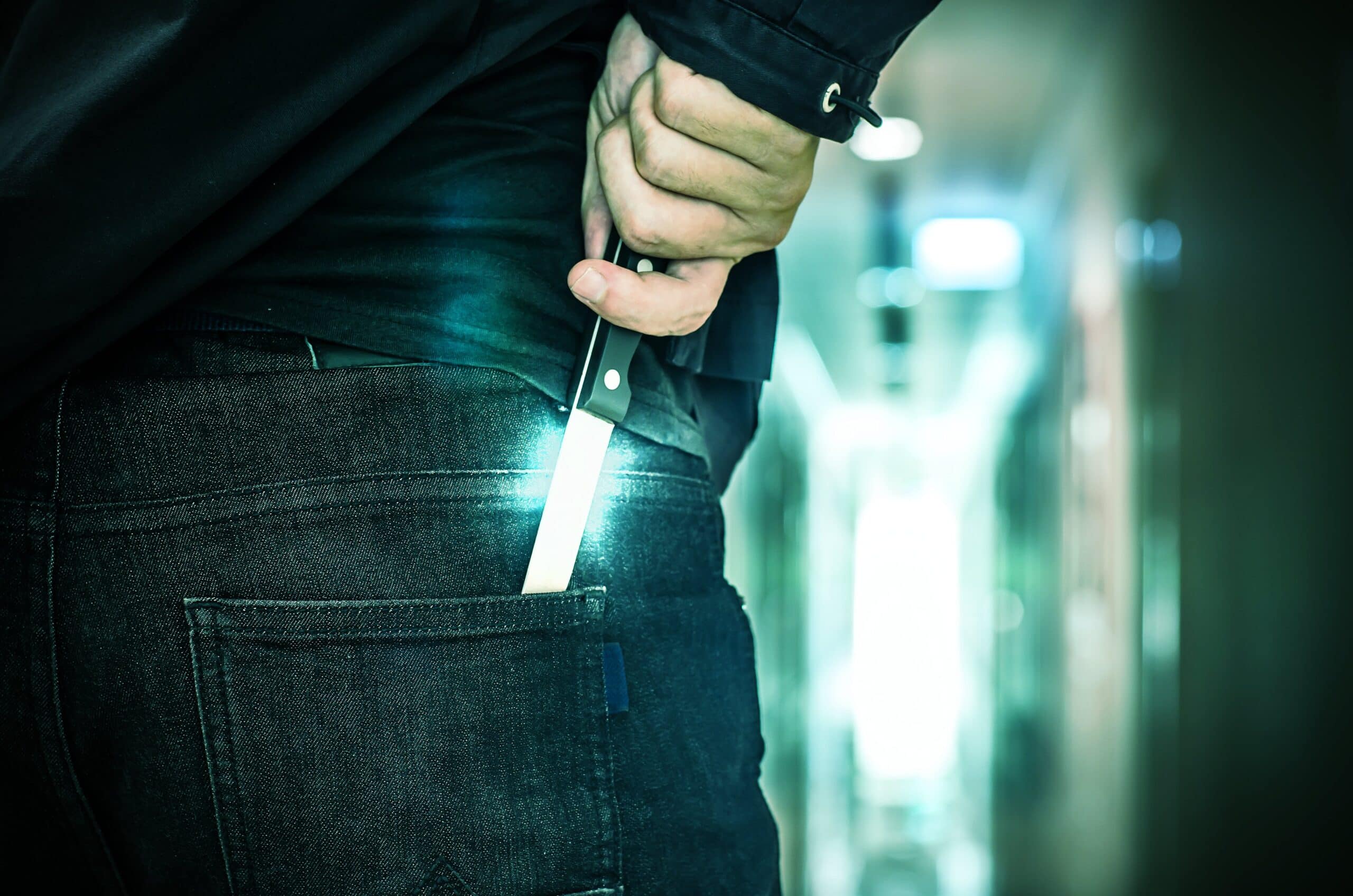
Custody of a Knife in Public Penalties and Laws in New South Wales
Recent serious knife-incidents have prompted calls to give police more power to combat knife crime in New South Wales… continue reading

One Punch Laws and Parole in New South Wales
Kieran Loveridge who was convicted of the one punch death of an 18-year-old has been released. Click here for more... continue reading

Is ‘NMN’ Legal in Australia?
What is NMN? An outline on the rules and regulations around Nicotinamide mononucleotide ('NMN') in Australia. continue reading

Is Xanax and Valium Legal in Australia?
NSW Police locate the largest single seizure of pharmaceutical drugs in the State’s history following a search of a unit in Auburn… continue reading

Mandatory Minimum Sentencing for Child Sex Abuse Offences in Australia
Australia's highest court has ruled on whether the mandatory minimum sentencing laws also apply to commonwealth child sex abuse cases… continue reading
FREE CONFERENCE BOOKING FORM
- Our Mission
- Testimonials
- Apprehended Violence Orders (AVOs)
- Assault Charges
- Break & Enter Charges
- Corporate Crime
- Drug Offences
- Firearms & Weapons Offences
- Fraud Charges
- Murder & Manslaughter
- Robbery Charges
- Sexual Offences
- Bail Applications
- Dangerous Driving
- Drink Driving
- Drive Under the Influence (DUI)
- Drug Driving
- Negligent Driving
- Corporate News
- Criminal Law
- Criminal Offences
- Domestic Violence
- Fraud and Stealing
- Sex Offences
- Traffic Offences
We're here for you 24/7 1300 595 299
- Conjugal Visits
Home / Blog / Conjugal Visits
A conjugal visit refers to a period of time inmates are permitted to spend with a visitor in private, outside of the supervision of prison authorities. This visitor is usually the legal spouse of the inmate, but it can also be other members of their family or even friends.
In Australia, conjugal visits are permitted only in Victoria. Conjugal visits are not allowed in New South Wales or anywhere else in the country.
What is a Conjugal Visit?
A conjugal visit is a form of prison visitation in which an inmate’s loved one – usually their spouse – is permitted to visit them for a period without supervision. This period can range from hours to days.
The Purpose of Conjugal Visits
Conjugal visits can be extremely beneficial for the well-being of prisoners. The isolation prisoners feel from their intimate family members is well-documented. Conjugal family visits can be significant in ameliorating this sense of isolation for prisoners and their families.
A traditional prison visit is strictly supervised. Conjugal visits differ in the sense that they occur without any supervision.
Conjugal visits are commonly associated with sexual relations between spouses. When conjugal visits were briefly permitted in the Australian Capital Territory in 2011, inmates were provided with “domestic surroundings” and birth control. This kind of contact is understood to be crucial to the maintenance of healthy relationships.
Conjugal visits can also take place with other members of an inmate’s family, including their children or siblings. Just like spousal relationships, spending time with these loved ones outside of the supervision of prison authorities can be tremendously significant for the well-being of inmates.
Conjugal Visits in NSW
Conjugal visits are not permitted in NSW. There are 2 types of prison inmate visits in NSW. The first is contact visits, in which physical contact between inmates and visitors is allowed. The second is non-contact visits, in which visitors and inmates are placed in an environment in which physical contact is not possible. This usually involves separating the visitor and the inmate with a piece of glass.
Legislation for Conjugal Visits in NSW
Inmate visitation in NSW is covered under the Crimes (Administration of Sentences) Regulation 2014.
Section 100 states that: “Visits to inmates may be either contact visits, in which the inmate and the visitor are permitted physical contact with each other, or non-contact visits, in which the visit takes place in an environment in which physical contact is prevented.”
Section 102 states that: “A visit must take place within sight of a correctional officer unless the governor permits otherwise.”
As such, conjugal visits are generally not permitted under the Regulation, although there is an allowance for prison governors to permit visits to take place outside of the sight of a correctional officer. In practice, however, it is commonly understood that conjugal visits simply do not occur in NSW.
Where are Conjugal Visits Permitted in Australia?
In Australia, conjugal visits are only allowed in Victoria. The most recent jurisdiction other than Victoria to allow conjugal visits was the Australian Capital Territory. The ACT’s Alexander Maconochie Centre briefly allowed conjugal visits in 2011, before quickly halting the program due to security concerns.
Conditions Required for a Conjugal Visit
Conjugal visits in Victoria are allowed at the 5 following prisons:
- Tarrengower Prison
- Marngoneet Prison
- Loddon Prison
- Fulham Prison
- Beechworth Prison
To be eligible to receive a conjugal visit in Victoria, the following conditions must be met:
- The prisoner is either a medium or minimum security inmate.
- The prisoner is serving an imprisonment sentence of 18 months or more.
- The visitor has been screened and is part of the prison’s approved visitor list.
Do You Have to be Married for a Conjugal Visit?
Section 38 of Victoria’s Corrections Act 1986 lays out the following guidelines for prison visitation:
“(1) The Secretary may in accordance with the regulations by instrument approve contact visiting programmes under which a prisoner’s family and friends may visit and have physical contact with the prisoner.
(2) The Secretary may in accordance with the regulations by instrument approve residential visiting programmes under which a prisoner’s family may stay with the prisoner in the prison.
(4) In this section family of a prisoner includes— (a) a near relative of the prisoner; and (b) any other person who has a long standing close personal relationship with the prisoner.”
This means that conjugal visits in Victoria are not limited to spouses. In practice, conjugal visits as implemented by Corrections Victoria revolve around intimate partners as well as the children of inmates.
Can You Get Married in Jail in Australia?
Yes, weddings are allowed in prisons in Australia. In NSW, inmates can apply to be married inside a correctional facility by filling in section A of the Application for marriage within section 9.1 of the Custodial Operations Policy and Procedures handbook.
Are You Still Allowed to Visit Your Partner in Prison?
Yes, the majority of prisoners are able to receive visitors from partners. In NSW, visits to inmates consist of contact visits, wherein you are allowed to touch, hug and kiss the inmate, and non-contact visits, where the visitor and the inmate are separated, usually by glass. Similar protocols are followed throughout Australia.
You can find out more about visiting an inmate at the Corrective Services NSW website.
Should NSW Prisons Permit Conjugal Visits?
Conjugal visits are a controversial subject. Many activists and relatives of inmates have pushed for conjugal visits to be allowed throughout Australia, arguing that they are fundamental to a humane prison system. Many other countries allow conjugal visits, including Brazil, Canada, France and Mexico.
Below is a summary of some of the key arguments for and against allowing such visits in Australia.
Reasons For Australian Prisons Allowing Conjugal Visits
- Experts believe allowing inmates to have intimate contact with partners during conjugal visits can reduce levels of sexual prison violence.
- Extended family visits can be massively beneficial in helping inmates maintain family relationships. Family relationships have been identified by experts and authorities alike as being crucial for reintegration into society and reduced recidivism. Reduced recidivism is good for convicted criminals, their loved ones and community safety.
- Victoria permits conjugal visits only for selected prisoners, at the discretion of the prison governor. This means conjugal visits serve as an incentive for the good behaviour of prisoners.
- Advocates for conjugal prison visits believe that they represent a fundamental human right that does not need to be removed during imprisonment. The UN Basic Principles for the Treatment of Prisoners states that “except for those limitations that are demonstrably necessitated by the fact of incarceration, all prisoners shall retain the human rights and fundamental freedoms set out in the Universal Declaration of Human Rights.”
Reasons Against Australian Prisons Allowing Conjugal Visits
- It can be argued that conjugal visits are too enjoyable for inmates to be permitted. Isolation from family members is one way to punish inmates for the crime committed and to disincentivize potential criminals from going down the same path.
- Conjugal visits are rife with safety concerns. In 2010, a German inmate murdered his girlfriend before attempting suicide during a conjugal visit. Inmates are often dangerous individuals. As such, it can be argued that they should never be let out of the supervision of jail staff.
- In Victoria, conjugal visits take place in a private, motel-type setting separated from regular visitor rooms. This setup represents an additional cost to the taxpayer, who already sees millions of public dollars go towards the housing of prisoners. Conjugal visits can be seen as an undue luxury that is not worth the cost.
Visiting an Inmate: How it Works
Prison visitation is crucially important for the well-being of inmates and their loved ones. Once you’ve located the correctional facility in which your loved one is housed, you can contact the facility to book your visit.
Establishing Proof of Identity with a 100-Point Check
For first-time visits, adults are required to provide ID in order to obtain a visitor ID number. For subsequent visits, adults must carry ID and produce it when requested. Children under the age of 18 do not need to produce ID to visit a prison, as long as they are accompanied by an adult.
For their first-time visit, adults must produce 1 document from List 1 and 3 documents from List 2.
List 1 – 1 document required
- current Driver Licence
- proof of age card issued by Service NSW (or equivalent from interstate)
- current passport or one that has expired within the last 2 years
List 2 – 3 documents required
- Birth Certificate
- evidence of enrolment from the Australian Electoral Commission
- public utility account e.g. water, gas, electricity and/or telephone issued within six months of the date of intended visit
- current registration papers (motor vehicle or boat)
- marriage certificate
- Australian citizenship or entitlement card issued by a government department, agency or authority e.g. a pension card
- Department of Home Affairs papers
- signed credit or debit card
Biometric Enrolment
16 correctional centres in NSW utilise a biometric enrolment system. These systems photograph a visitor’s face, scan their irises and capture their fingerprints. This information is retained for subsequent visits, and networked across all other correctional centres within the system, with the exception of the Special Purpose Centre, Long Bay.
Visitors must continue to carry ID when visiting inmates in case the system is not working.
Property, Clothing and Personal Possessions
NSW correctional facilities require visitors the abide by the following dress code:
- The following are prohibited: exposed midriffs; low-cut, backless, sleeveless, or strapless shirts; singlets; short skirts; and shorts.
- Visitors must remove all jewellery, including ear and body piercings. Wedding bands are permitted.
- Visitors must not wear hooded jumpers or jackets, scarves, handkerchiefs, hats or sunglasses.
Additionally, visitors cannot take personal items such as wallets, purses, jewellery, cigarettes, lighters or mobile phones into the visits area. These items must be left in a locker in the visiting reception area.
Visitors cannot bring prohibited items into a correctional centre. Prohibited items include:
Correctional Services has dogs that are trained to identify prohibited items. If staff have reasonable suspicion that a visitor is carrying prohibited items, they may be asked to remove outer clothing, as may any children who are accompanying them. CSNSW staff are not permitted to conduct strip searches of visitors.
Personal visitors to correctional centres are subject to full-body X-ray scanning. Visitors may refuse to be scanned, in which case they will either be asked to leave the correctional facility or may be offered a non-contact visit.
Enter your email address to follow this blog and receive notifications of new posts by email.
- Email Address* *
Browse by Category
- LY Lawyers Pty Ltd In The Media
Book your free consultation
Latest News
- The Bail Act 2013 (NSW)
- The Difference Between an Arrest, Charge and Conviction
- The Difference Between Solicitors and Barristers
- How to Write a Court Apology Letter
- Apprehended Violence Orders
Call 1300 595 299 for a Free Consultation
We fight to win your case.
- Full Name *
- When is your court date *
- Which court are you required to attend? *
- Phone Number *
- What have you been charged with?
Call 1300 595 299 for a Free Consultation
- When is your court date (dd/mm/yy)* *
- Which court are you required to attend?* *
- Which court are you required to attend *
Automated page speed optimizations for fast site performance
Should Conjugal Visits Be Allowed in Australian Prisons?

The question over whether to permit conjugal visits in Australian gaols is a polarising topic. Indeed, many in the community believe inmates forgo their right to spend intimate time with their spouse or significant other once they step through the prison gates.
Most Australian jurisdictions acknowledge the importance of prisoners maintaining family ties. However, only Victoria allows private visitations. Section 38 of the Victorian Corrections Act 1986 provides that the partner of an eligible inmate “may stay with the prisoner in the prison.”
There are multiple reasons behind the widespread reluctance to permit conjugal visits: politicians don’t want to appear soft on crime, there’s the stigma associated with the sexual nature of the visits, and the belief that the deprivation of intimate contact is a component of inmate punishment.
But, the opposition to private visitations flies in the face of the evidence from jurisdictions around the globe where their benefits have been shown. Conjugal visits not only maintain family ties, but they reduce recidivism, along with prison violence.
Furthermore, the UN Basic Principles for the Treatment of Prisoners sets out that “except for those limitations that are demonstrably necessitated by the fact of incarceration, all prisoners shall retain” their human rights and fundamental freedoms.
And as a system of intimate partner visitations is operating in Victoria and elsewhere in the world, it’s clear that in all other Australian jurisdictions inmates are being deprived of a right that their imprisonment does not require be withdrawn.
Reducing reoffending
Justice Action coordinator Brett Collins explained that the principle behind allowing inmates to spend intimate time with their partners is obvious, as contact with family is essential in preserving those relationships.
“Private visits where sex may or may not occur, but a couple can safely deal with each other privately is very important to relieve the strains and keep the intimacy,” Mr Collins said. “It normalises the relationship and gives both participants the feeling of community support for them.”
“The alternative is a single sex society without sexual relief and a partner outside without intimacy.” the long-time prisoner rights advocate added. “Neither is necessary.”
Mr Collins pointed out that Corrective Services NSW states that the two key factors that prevent ex-prisoners from reoffending are family and employment after prison . And as rehabilitation is a basic aim of incarceration, permitting intimate visits would be a practical step in achieving that goal.
Currently, recidivism rates in NSW stand at around 48 percent , which means almost half the more than 13,500 adults being held in the state’s correctional facilities will be sent back to prison for committing further crimes within two years of being released.
The Victorian system
As Monash University student Rebekah Katona-Staindl outlined in her 2016 thesis, Corrections Victoria has a system of residential visits, which fall into two categories. One has a focus on maintaining intimate partner relationships, while the other focuses on relationships with children.
Medium and minimum security prisoners who are serving at least 18 months behind bars are eligible for residential visits, which take place in a motel room like setting. Currently, they’re available at five correctional facilities: Beechworth, Fulham, Loddon, Marngoneet and Tarrengower.
As Ms Katona-Staindl explained an important aspect of residential visits is that they’re an incentive-based reward. And she found that the officials she interviewed as part of her research stressed the importance of the privacy couples shared during these visits, rather than any sexual aspect.
The ACT had a short-lived conjugal visit program at the Alexander Maconochie Centre, which began in 2009 . However, the program stalled due to concerns over possible threats to security, and the policy was repealed in 2014.
Retaining outside connections
Fellow of the Australian and New Zealand Society of Criminology Professor Peter Norden has been lobbying for conjugal visits in Australian prisons for decades. The former Catholic chaplain at Pentridge prison began campaigning for intimate partner visits after witnessing their benefits in the Swedish and Netherlands prison systems in the 1990s.
“Retaining family connection has been a significant outcome of the trialling of conjugal visiting in Victoria,” Professor Norden told Sydney Criminal Lawyers®, “something the Scandinavians discovered decades ago.”
Conjugal visits are also permitted in countries such as Brazil, Canada and Russia, while four US states currently allow them. Some of the benefits that have been cited in relation to those programs include improved inmate mental health and promoting reintegration into society.
“One of the biggest negative impacts of imprisonment is the loss of connection to family and significant others, and to one’s community, especially for Indigenous inmates,” Professor Norden continued.
“This results in a greater probability of reoffending upon release and a deterioration of public safety.”
Curbing assaults in prison
Lismore Magistrate David Heilpern conducted research into the sexual assault of young men in NSW prisons in the early 1990s. He found that a quarter of the male inmates aged between 18 to 25 that were surveyed reported having been sexually assaulted whilst in gaol.
The then barrister said that whilst he was undertaking research in the Dutch prison system, where conjugal visits are permitted, he found that not one prisoner or prison officer that he spoke to had seen or heard of a sexual assault inside.
Mr Heilpern recommended that NSW authorities consider implementing conjugal visits, along with single cells and group management, as an initial step in dealing with the high levels of sexual assault in the NSW prison system.
A basic right
Speaking at the Prisons 2015 conference, Justice Health Services senior staff specialist Professor Michael Levy said that as part of a humane prison system, conjugal visits are a basic right that prisoners and their partners should be entitled to.
Professor Levy explained via email that along with the Victorian prisons, the Cadell Training Centre in South Australia allows intimate partner visits. “Anywhere else it can only be a shag in the nursery,” he said, which is “disrespectful of both civilian and prisoner participants.”
“Given that community relationships are so important to rehabilitation,” he concluded, “it is curious that custodial authorities across the country are so committed to abstinence.”
Receive all of our articles weekly

Paul Gregoire

Related Articles

Your Opinion Matters
Ask our ai assistant, search our site enter search term and press go, saved articles & pages, appointment booking form, preferred date for conference, briefly describe your situation:, do you have a court date, your review & rating * mandatory fields, review text *, rating (optional).
(02) 7205 5934
- Find Court Date
- Book A Lawyer
Conjugal Visits in Australia
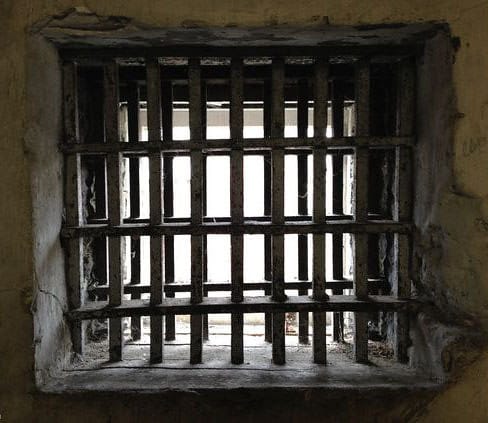
In Australia, inmates in jail are allowed to receive visits from their spouses, partners, family, and friends. Prisons in the States and Territories allow regular prison visits, and each of the prisons has its procedures to book visitors for visits. Are conjugal visits allowed in Australia? Not all the States and Territories in Australia recognise or permit conjugal prison visits, except Victoria. Conjugal visit in NSW is therefore not allowed for inmates. Victoria is the only state in Australia that permits conjugal visits as a conjugal right subject to certain rules or conditions.
What is a Conjugal Visit?
A conjugal visit differs from a regular prison visit. A regular, supervised prison visit can include a contact visit or a non-contact visit. With a contact visit, a prisoner and visitors are allowed some contact, such as hugging. A screen separates the prison inmate from their visitors during a non-contact box visit.
Conjugal relates to a marriage or a relationship between a couple, and this includes sexual relations. A conjugal visit allows the inmate and a visitor to engage in intimate extended contact at a designated time. Conjugal prison visits are pre-arranged, and the inmate spends time in private with their visitor in a motel-type setting. Conjugal visits may take place in designated rooms or a structure for that purpose, for example, a trailer or a small cabin. Supplies such as towels, soap, or bed linens may be supplied for a visit.
The prison will inform the inmate what the duration of the conjugal visit will be. The length of the visits can vary from a few hours to several days, depending on the rules and regulations of a specific prison.
Legislation for Conjugal Visits in Victoria
Section 37 and Section 38 Corrections Act 1986 (Vic) allow a prisoner a conjugal visit from a partner or spouse. However, these visits are subject to conditions. For example, section 37 allows a visitor to see and speak with the prisoner, but touching is not allowed unless the visit is part of a contract or residential visiting programme.
Section 38 of the Corrections Act 1986 states;
(1) “The Secretary may in accordance with the regulations by instrument, approve contact visiting programmes under which a prisoner’s family and friends may visit and have physical contact with the prisoner”.
(2) “The Secretary may in accordance with the regulations by instrument, approve residential visiting programmes under which a prisoner’s family may stay with the prisoner in prison.”
In this section, “family” is defined as a “near relative” or any other person who has a long-standing close personal relationship with the prisoner. “Near relative” is a partner, parent or grandparent (or a partner’s), child or grandchild (or a partner’s), or a sibling (or a partner’s)”.
An inmate is eligible for two types of conjugal visits in Victoria:
· An intimate contact visit between a prisoner and his/her partner or spouse
· A visit with the prisoner’s children
Corrections Victoria manages conjugal visits. Corrections Victoria is a unit of the Department of Justice and Community Safety at five prisons. A prisoner in one of the following five prisons in Victoria is allowed a conjugal visit:
· Beechworth Prison
· Fulham Prison
· Loddon Prison
· Marngoneet Prison
· Tarrengower Prison
Beechworth prison has a dedicated property near the prison where all family visits take place.
Conditions Required for a Conjugal Visit
A prisoner has to meet the following conditions to be eligible for a conjugal visit:
· The prisoner has to be a minimum or medium-security inmate
· The prisoner is serving a sentence of 18 months or more
· The visitor has to be on the approved visitor’s list and has been screened

Should Australian Prisons Allow Conjugal Visits?
Conjugal visits were stopped across the States and Territories in Australia, except Victoria, because of safety concerns of the visitors and inmates. There are some fears of compromised security during conjugal visits. The goal of imprisonment is usually for rehabilitation, retribution, deterrence, and the protection of society. Also, the deprivation of the luxuries of freedom, such as intimacy, is part of the purpose of the punishment for the crime committed.
The added expense and administrative burden when allowing conjugal visits need to be taken into consideration. There must be an additional screening of all visitors and assessing the validity of relationships or marriages. Opponents have further noted the unfairness of allowing some inmates the privilege of a conjugal visit, whilst denying others inmates.
In a nutshell, the following reasons are presented against conjugal visits in Australian prisons:
· The deprivation of intimacy for inmates in prison is part of the punishment for the crime they committed
· The level of resources, money and time that goes into facilitating a conjugal visit for inmates place unnecessary strain on the prison system
· The sense of unfairness if some inmates get conjugal visits while others do not
· The safety concerns of visitors and the inmates due to the physical nature of these types of visits
· The appearance of being soft on crime can influence public confidence in Government
However, conjugal visits are implemented in various prisons across the world to lessen the strain on families when a member is incarcerated for a long period. Some of these prison authorities see conjugal visits as an added benefit to prevent homosexuality inside the prisons as well as affairs by wives or husbands living outside the prison system.
Some say conjugal visits are necessary to ensure a humane prison system. Some people in favour of conjugal visits refer to the United Nations Standard Minimum Rules for the Treatment of Prisoners. This states that:
· 61. “The treatment of prisoners should emphasise not their exclusion from the community, but their continuing part in it”.
· 79. “Special attention shall be paid to the maintenance and improvement of such relations between a prisoner and his family as are desirable in the best interests of both parties”.
· 80. “From the beginning of a prisoner’s sentence, consideration shall be given to his future after release, and he shall be encouraged and assisted to maintain or establish such relations with persons or agencies outside the institution as may promote the best interests of his family and his social rehabilitation.”
Conjugal prison visits am to allow and maintain family connections and to assist with the reintegration of the inmate back into the community upon release from custody. Another purpose of the conjugal visit is to reduce the chances of reoffending and to make the community safer. These visits also provide an incentive for the inmates to comply with various day-to-day prison rules and regulations.
Conjugal visits can increase community safety because inmates can maintain family relationships, improve their mental health, and reintegrate with ease back into the community. It can lead to a reduction in violence within the prisons and maintain a semblance of fundamental human rights with a more humane approach to the prison system. This will hopefully curb recidivism and decrease prison violence. All of these factors can decrease the likelihood of an inmate reoffending after rehabilitation, and this will increase community safety in the long term.
Visiting an Inmate
It can be daunting to visit an inmate, and strict safety and security measures are in place to ensure that prisons remain safe and secure. On a first visit, a visitor must supply all relevant information. This information will be logged into the prison system. Some biometric details will be recorded and the visitor will need to have the correct identification to pass the 100-point check.
An inmate has to nominate who can visit them, and if a person is not on the inmate’s contact list the person will not be allowed to visit. All visitors, including children, must be approved before a visit, and anyone who has been in prison in the last 12 months will not be allowed to visit an inmate. Inmates are required to supply some personal information about visitors. This personal information is recorded to inform approved visitors of visiting arrangements.
Family and friends have to arrange a visit in advance by phoning and confirming a date for a visit. The request will need to be approved. Each prison has its visiting times, and rules, and family and friends can get this information on the prison page. Visiting rules and times do change, and it is advisable to check before a visit.
Children are allowed in the prison for visits. A visit will, however, not be allowed if a court order is in place that bans contact with children.
If a person cannot attend a scheduled visit, it is advisable to phone the prison and cancel the visit. A person can leave a message for the inmate to facilitate further contact. Each prison uses its security methods. The prisons can have a variety of security methods:
· Fingerprint scanning
· X-ray
· Eye scanning
· Metal detector or a handheld device scanning
All visitors will also have to pass an ID check. Visitors have to supply more than one form of ID and they also must have a photograph.
Prisons Establish Proof of Identity with the 100-Point check
The Department of Correctional Services uses the 100-point check system to establish proof of identity for all prison visitors. The visitor will need original documents or certified copies by the Justice of the Peace to prove their identity. The Department of Correctional Services does not accept online, digital, or photocopied identification forms and visitors must supply original hard copy photographic identity documents. 100 points of identification are required to visit a prison. If a visitor does not have suitable identification, the visitor will not be able to visit an inmate.
Children need identification, such as a student ID card. Infants do not need any ID.
100-point category:
· A valid passport
· Law card
· Firearms licence
· Key pass
· Police member ID
· Ombudsman photo ID card
· Working with children pass
· Consulate ID card
· Correctional service card
· Current driver’s licence with photo
50-point category:
· 60+ card
· Birth certificate
· Marriage certificate
· Australian citizenship certificate
· Defence Department ID
· Government authorised under 16 years card
25-point category:
· Medicare card
· Health care card
· Student card
· Credit card
· Bank book
· Proof of Age card
Only one of each type of identification will be accepted in the 25-point category. Four of these documents together equal 100 points.
Biometric Enrolment System
A Biometric Enrolment System is used in some of the prisons in Australia. This biometric system uses iris or fingerprints to confirm the identity of all individuals entering and exiting the prison. All visitors over the age of 18 have to be enrolled in the system on their first visit. After that, a visitor will only be enrolled into the system once, and each visitor will then be biometrically scanned into and out of all the institutions with the equipment.
The information is used to confirm the identity of a visitor and to ensure the visitor matches the details of the person on the authorised visitor’s list.
Searching and Monitoring Visitors
Visitors will be searched upon entry into the prison and after registering. In addition, vehicles entering the prison grounds may also be searched, and the prison authorities may record details of the search, including the vehicle’s registration number.
Visitors may be monitored and recorded within the prison grounds and in the carpark. In addition, cameras may monitor and record public areas in prison facilities. Visitors are subject to the directions and restrictions of the prison as deemed necessary to maintain the facility’s security.
Property, Clothing, and Personal Possessions
Visitors are not allowed to wear clothing that contains offensive slogans or gang-related symbols. Women are also prohibited from wearing overly revealing or unsuitable clothing for a visit. There are lockers available to store small items during the prison visit. Newspapers, handbags, cash, and any electronic devices are not allowed in prison.
Lyons Law Group is a boutique firm of expert criminal defence lawyers and barristers in Sydney. Contact us for legal advice on conjugal visits in prison or any other legal matter.
Going To Court?
Send an online enquiry.

Your Phone Number
Your Enquiry
What Our Clients Say About Us

Mohammad Khan is the Principal Solicitor of Lyons Law Group. After graduating with a Bachelor of Aviation from the University of New South Wales, Mohammad took a keen interest in the law. He began training in criminal law under the tutelage of Australia’s leading criminal lawyer Adam Houda and studied law at the University of Sydney.
Lyons Law Group
Useful links.
- Legal Aid NSW
- Traffic Law
- Criminal Law
- Your Rights
- Privacy Policy
Main Office: Level 3, 302/58 Kitchener Parade Bankstown NSW 2200
Sydney Office: Level 1, 60 Martin Place Sydney NSW 2000 (By Appointment Only)
Parramatta Office: Level 49, 8 Parramatta Square, Parramatta NSW 2150 (By Appointment Only)
Benefits and risks of conjugal visits in prison: A systematic literature review
Affiliations.
- 1 Division of Psychological Medicine and Clinical Neurosciences, School of Medicine, Cardiff University, Cardiff, UK.
- 2 School of Social Sciences, Cardiff University, Cardiff, UK.
- PMID: 34597428
- DOI: 10.1002/cbm.2215
Background: Imprisonment impacts on lives beyond the prisoner's. In particular, family and intimate relationships are affected. Only some countries permit private conjugal visits in prison between a prisoner and community living partner.
Aims: Our aim was to find evidence from published international literature on the safety, benefits or harms of such visits.
Methods: A systematic literature review was conducted using broad search terms, including words like 'private' and 'family', to maximise search sensitivity but strict criteria for inclusion - of visits unobserved by prison staff and away from other prisoners. All included papers were quality assessed. Two of us independently extracted data from included papers, according to a prepared checklist. Meta-analysis was considered.
Results: Seventeen papers were identified from 12 independent studies, all but three of them from North America. The only study of health benefits found a positive association with maintaining sexual relationships. The three before-and-after study of partnership qualities suggested benefit, but conjugal visiting was within a wider family-support programme. Studies with in-prison behaviour as a possible outcome suggest small, if any, association, although one US-wide study found significantly fewer in-prison sexual assaults in states allowing conjugal visiting than those not. Other studies were of prisoner, staff or partner attitudes. There is little evidence of adverse effects, although two qualitative studies raise concerns about the visiting partner's sense of institutionalisation or coercion.
Conclusions: The balance of evidence about conjugal visiting is positive, but there is little of it. As stable family relationships have, elsewhere, been associated with desistance from crime, the contribution of conjugal visiting to these should be better researched.
Keywords: conjugal visit; consensual sex in prisons; imprisonment; prisoners; private visiting.
© 2021 John Wiley & Sons Ltd.
Publication types
- Systematic Review
- Interpersonal Relations
- Risk Assessment
- Sexual Partners
Skip links and keyboard navigation
- Skip to content
- Use tab and cursor keys to move around the page (more information)
Popular services
- Renew vehicle or boat rego
- Check my licence demerit points
- Renew my driving licence
- Change my address
Browse by category
- Transport and motoring
- Employment and jobs
- Education and training
- Queensland and its government
Visiting a prisoner
Queensland Corrective Services recognises the importance of visits to prisoners. This page explains the types of visits, the need to apply for visits to a prisoner and what you need to know when you attend a prison, including the rules and regulations and entering a prison .
Prisoners may receive visits from:
- lawyers and members of the legal profession
- official visitors
- religious visitors
Family and friends
It is important that prisoners keep strong links with family and friends during their time in prison, so we encourage you to visit them. A prisoner can normally have up to 1 hour of visiting time each week in addition to time with their lawyer. Visits may be contact or non-contact.
Virtual Personal Visits (VPVs) are also available. New visitors seeking a VPV must go through the same application process as visitors to a centre.
Learn more about applying to visit a prisoner .
Lawyers and members of the legal profession
Legal professionals can visit a prisoner they are representing, although this must be pre-arranged with the prison authorities. Unlike visits from family and friends, there are normally no restrictions on how long legal visits last or how many legal visits a prisoner can have in a week.
A prisoner may also be able to phone specialist legal organisations for free such as the Prisoners' Legal Service, Legal Aid Queensland and the Queensland Ombudsman (who investigates complaints about government departments, including prisons). Unlike calls to friends and family, these calls will not have a prison officer listening in.
Official visitors
Official visitors are specially appointed to visit prisoners regularly to help them manage and resolve any problems or complaints they may have.
Find out more about official visitors .
Organising your visit
Applying for a prison visit.
Before you visit, you must complete a personal visitor application (Form 27) and return it to the correctional centre you wish to visit.
If you can’t download the form, we can send it to you by mail. If you need us to send you a Form 27, please email your request to [email protected] .
The form requires you to:
- provide identification (ID) documents
- state if you have any criminal convictions —including a criminal record in another state or territory
- include photocopies of ID signed by a Justice of the Peace or Commissioner for Declarations .
The person in charge may approve a contact, non-contact or virtual visit. Contact visits are personal visits during which there is direct physical contact between you and the prisoner. Unforeseen circumstances (e.g. COVID-19) may require correctional centres to place temporary restrictions on visits.
You will be security checked before you can have a contact visit, which can take up to 6 weeks. In the meantime, you can request a non-contact visit or virtual visit.
Accepted ID
You can prove your identity by providing either :
- any 1 item from the first list
- any 3 items from the second list.
All forms of ID must be current —we will not accept expired ID.
List 1—supply any 1 item:
- driver licence
- letter signed by a member of an Aboriginal or Torres Strait Islander organisation that identifies you by name and signature
- the chief executive of your workplace
- a law enforcement agency
- the Supreme Court
- a state government entity
- an education facility.
List 2—supply any 3 items:
- other photographic ID displaying signature
- birth certificate
- statutory declaration verifying your identity and signature, signed by a Justice of the Peace or Commissioner for Declarations.
- debit/credit card or bank book with signature
- Medicare card
- pensioner or social security card
Your security clearance must be updated every 12 months.
You must bring your approved ID with you every time you visit . If you do not have your approved ID, you will not be allowed to visit.
Children as visitors
You can apply to bring a child into the centre to visit by completing the relevant section on the personal visitor application (Form 27). To be considered for approval, the child must have an established relationship with the prisoner, and you must provide proof of the child's identity.
The person in charge must be satisfied that:
- there are no court orders preventing contact between the child and the prisoner
- a visit is in the child’s best interests.
They may impose special conditions on the child’s visit, such as requiring a non-contact visit.
An application for a child visitor must include any 1 of the identification documents listed above.
Booking a prison visit
Once you are approved, you can book a visit. You must book all personal visits in advance during nominated booking times.
Every prison has its own system, so contact the prison for details and visiting times.
The prison keeps a register of all people who have been security cleared, including:
- your full name
- your date of birth
- the date of your security check
- your criminal history file number (if any)
- the prisoner(s) you’re visiting.
Each prison has a different allowance for the number of people visiting. They allow visits for an hour at a time each week due to social distance regulations.
Find information about centre visiting arrangements .
Rules and regulations
All Queensland corrective services facilities are tobacco and smoke free. No smoking is allowed anywhere on the grounds of a corrective services facility (including car parks and walkways).
You can’t bring cigarettes and other smoking-related products (including cigarette lighters, matches, papers and filters) into a corrective services facility.
If you fail to follow this rule, you may be:
- asked to leave the prison
- suspended or refused visit access approval.
What to wear
There are very strict rules about what you can wear when visiting a prisoner.
You must wear:
- proper shoes or sandals (no thongs)
- clean clothes in good condition.
You can’t wear:
- any clothing displaying racist or derogatory slogans, motorcycle gang colours or clothing with gang insignias
- see through garments, including garments that expose underwear
- clothes that are excessively torn, stained, dirty, ripped or frayed
- steel capped boots
- high heels (heels are to be no higher than 5cm)
- any jewellery other than wedding and engagement rings
- hair scrunchies or clips (only single elasticated hair ties are allowed)
- internet enabled watches (i.e. smartwatches).
You can wear your wedding or engagement ring, but you must remove all other jewellery before you enter the prison.
For more information, refer to the appropriate dress standards notice .
Prohibited items
It is a criminal offence to take certain items into a prison. You can read what items you can’t take into prison in the Corrective Services Regulation 2017 s 19 .
If an officer suspects you have any of these items on you, you can be detained and searched—this could be a frisk or full body search. Officers may also search your car. If a banned item is found, you may be charged.
What you can give a prisoner
You cannot give the prisoner money, documentation, or personal items during your visit. However, you can bring items like socks, singlets, underclothes and clothes for court.
These items must be approved beforehand and given to the Visits Processing Officers to be passed onto the prisoner. You will need to complete a hand-in form for the items to be accepted.
You can also mail cards, letters and photographs to the prisoner. Note: Mail may be opened, searched and censored. At high security centres, there are rules which do not permit certain items to be included in mail (e.g. items which contain glitter, glue or stickers). If in doubt, contact the correctional centre before posting an item.
Some centres allow you to deposit money into a prisoner’s account. If you would like to deposit money, speak to the Visits Processing Officers before your visit. You will need to bring the correct amount to your visit.
Transfer of money
For safety and security purposes, we cannot accept cash payments for prisoners by ordinary or privileged mail.
Any payments to prisoners must be facilitated, preferably by Secure Payment Services . Payment may also be made by money order or cheque.
Entering the prison
Each prison has a visitor fact sheet that tells you when to arrive for your visit. If you’re late, you may not be allowed to enter. Always check the visiting times, as they may have changed since your last visit.
When you arrive, go to reception in the visits area to confirm your booking.
You may not be allowed to enter if you don’t have the right identification, or if the prison officer believes you are under the influence of drugs or alcohol.
Storage lockers or other appropriate storage facilities are provided at high security centres to allow the storage of personal items that are not permitted to be brought into a secure facility.
Security and searches
In many prisons, you may have to go through security screening with electronic drug detection devices or be checked by drug detection dogs. If you refuse to have a scan or search, or return a positive result to drugs, you may not be allowed to enter the prison or be limited to a non-contact visit.
During your visit
If you or the prisoner break the rules or behave in an inappropriate way, your visit may be cancelled, and you may be prevented from making future visits.
Keep an eye on your children at all times and make sure they don’t interfere with or disturb other visitors or prisoners during the visit.
You are also not allowed to:
- remove anything from a prison
- interview or photograph a prisoner or part of a prison facility.
Toilets are available before or after your visit in the administration building where you sign in. There may not be toilets available in the centre’s visiting area.
If there are toilets in the visiting area and you use them, we may end your visit or the rest of your visit may be non-contact. This ensures that no prohibited items enter the prison.
COVID-19 information
To ensure the safety of our correctional centres during the COVID-19 pandemic, visit restrictions are now in place at all Queensland prisons.
Read the most up-to-date information about prison visits .
All visitors must wear face masks and hand sanitiser is available at all entry and exit points.
Legal advice
Prisoners’ Legal Service Inc is a community legal centre that provides free legal advice to prisoners and their families. To contact them, phone (07) 3846 5074 or email [email protected] .
Legal advice may also be available from Legal Aid Queensland by phoning 1300 65 11 88 .
More information
Find out how to:
- find a prisoner
- contact a prisoner .
- Azerbaijani
- Chinese (Simplified)
- Chinese (Traditional)
- Haitian Creole
- Kinyarwanda
- Kurdish (Kurmanji)
- Kurdish (Soranî)
- Odia (Oriya)
- Scots Gaelic
Visiting prisons or detention centre

Prisoner assessment
If a friend or loved one is in custody, you may be concerned about what will happen to them.
Most male offenders will be remanded at Hakea Prison and female offenders will be remanded at Melaleuca Women’s Prison. Regional offenders will be assessed at the prison closest to them.
After sentencing, regardless of the crime they have committed, they are required to be assessed so staff can work out what their security rating should be, if they have any health issues and what work, education or rehabilitation programs would be helpful for them. Prisoners serving a sentence longer than 6 months will receive a more in-depth assessment which includes developing an Individual Management Plan for them.
The security classification of a prisoner is the biggest deciding factor in where he or she will serve their sentence. Other factors include how close a facility is for family and friends to visit, health needs and program availability.
The system is designed to reward good behaviour and sanction poor behaviour and unwillingness to address offending. Many prisoners will not progress through the security classification system (ie they will not automatically progress from maximum to minimum security.) The classification is based on a number of factors including the prisoner's behaviour, offence type and history and their participation in programs available within the prison system.
Prisoner transport
Safe and secure prisoner transport is a key priority for the Department of Justice. The Department has high standards of care in place to ensure the safety, security and welfare of people in custody, while they are being transported.
There are around 36,000 movements of people in custody every year via air, coach and secure vehicle throughout the state of Western Australia
The terrain travelled varies significantly from Wyndham in the north to Albany in the south and includes extreme climatic conditions.
Visiting prisons
Visitors are welcome at all Western Australian (WA) prisons. Family and friends are encouraged to maintain contact with prisoners throughout their sentence. Visits are an important link in preparing prisoners for their life in the community when they are released.
Some people feel anxious or overwhelmed about their first visit to a prison. The following is designed to prepare you for visiting a prison and aims to make your experience as pleasant and positive as possible.
Here is a list of what to expect when entering a prison:
- All prisons have a Code of Conduct reinforcing what behaviour is expected of prisoners and visitors during their visit. See the Visitor Code of Conduct for further details.
- Please note there is a dress standard for visitors entering a prison. You may not be allowed to enter the prison if you are not dressed appropriately. See Visitor Dress Standards for further details.
- You will need to produce identification to be allowed into a prison. See Frequently Asked Questions below for further details.
- Video cameras operate in all prisons and you will be filmed during your prison visit.
- There are a number of different searching methods we use on our staff and visitors entering a prison, these include the use of: Drug Detection Dogs (these dogs are 'passive' dogs that are trained to detect an illicit substance), electronic equipment (such as metal detectors and drug particle detectors), pat-down searches and strip searches.
- Any person caught trying to bring a banned substance or item (refer to Frequently Asked Questions below) into a prison may be charged by police and may be refused entry on future visits to all prisons across Western Australia.
Visiting hours
Visiting hours at prisons vary depending on whether the prisoner is remanded or sentenced, and appointments should be made up to 24 hours in advance, where possible. Visit the individual prison page for visiting details.
Support for visitors
At all WA Metropolitan prisons and some regional prisons, there are additional family support services available for visitors. Family support centres are operated by independent, not-for-profit organisations to help offenders, their families, children and visitors get through the prisoner's sentence as best they can. Before visiting a prisoner at a prison with a family support centre, you must check-in at the centre first.
Family support centres are available 7-days-a-week at Bandyup Women's Prison, Casuarina Prison and Hakea Prison. Services are available at Karnet and Wooroloo prison farms on weekends and public holidays. To find out more, contact the individual prison.
Visiting - Frequently Asked Questions
New visitors will be required to complete a Visitor Identification Form (DOCX) , produce 100 points of ID and have their photograph taken to become a registered social visitor.
E-Visitors not attending the prison in person (due to living in a remote community, interstate or overseas) will be required to have section 1 of the Visitor Identification Form witnessed by a person authorised under Oaths, Affidavits and Statutory Declarations Act 2005 and emailed to the prison prior to their E-Visit booking. Visitors are to ensure they have their 100 points of ID ready prior to the commencement of the E-Visit. Registered visitors are not required to bring ID into the prison, however visitors should have photo ID readily available (ie in their locker) as they may be asked at any time to produce it.
What can I take into a prison?
Visitors are only permitted to take the following items into the prison:
- Where a baby is attending: a dummy (pacifier), blanket and baby's bottle. The bottle can only be filled with a liquid for the baby's consumption during the visit (eg formula, water, milk).
- Personal medication that is or may be required during the visit.
All other items are not permitted unless prior approval is obtained from the superintendent and the items are searched on arrival at the prison (this includes all documentation).
Can I bring children when I visit a family member or friend in prison?
Yes, as long as they are supervised by a parent or guardian 18 years of age or older and no restrictions apply to the prisoner. Refer to Prison locations for details on how many children are allowed at one time.
What facilities are available for children when visiting prisons?
Children are to be under the control of an accompanying adult visitor at all times and may sit on the visitor's or prisoner's lap as long as no restrictions apply to the prisoner.
How long can I stay? How often can I visit?
Visiting hours at WA prisons vary, depending on whether the prisoner is remanded or sentenced, and appointments should be made up to 24 hours in advance, where possible. To find visit details for individual prisons, including how to get there, refer to Prison locations.
How many people can visit at one time?
All prisons have a maximum of 3 adults and 3 children per visit rule.
What other options are available if I can't visit a family member or friend at the prison, ie remote, video conference, non-contact?
E-Visits are available. Visitors must be registered as a social visitor to have an E-Visit. At some prisons due to the number of E-Visit facilities available, only the prisoner can apply for an E-Visit.
Is there certain behaviour and a dress code that applies?
Yes. Please see the Visitor Code of Conduct and Visitor Dress Standards, below.
Am I allowed to bring food and drink inside a prison?
Where facilities are provided, only prisoners are allowed to get hot or cold drinks for themselves or their visitors. All food that isn't eaten during the visit has to be removed from the "visits facility" by the visitor.
Are there lockers available for my belongings?
Unauthorised items can be placed in the secure lockers provided in an area or location designated by the superintendent. Deposit boxes for the storage of mobile phones, briefcases and personal carry bags are available for all visitors, excluding social visitors, within the prison gatehouse or another area designated by the Superintendent.
Can I get banned from visiting a prison?
Offensive, inappropriate or improper behaviour by either prisoners or visitors will result in termination of the visit by prison staff. A visitor or prisoner may, for the security/discipline/good order of the prison, have a visit terminated.
Bans issued by a superintendent for any one or more of the following prescribed reasons, shall apply across all prisons (including Acacia) in the Western Australian prison system:
- the person has attempted to take a weapon into a prison.
- the person has attempted to take an unauthorised item other than a weapon into a prison.
- the person has coerced or attempted to coerce a visitor to a prisoner to contravene s 50(1) of the Prisons Act 1981 .
- ss 50(1), 50(2), 50(3), 52(4) of the Prisons Act 1981
- s 145 of the Criminal Code act Compilation Act 1913 .
Can I take a gift at Christmas time or for a birthday?
No, however, cash amount approved by the prison may be deposited into the prisoner's account. See Sending money to prisoners on the relevant prison page.
Are conjugal visits allowed?
WA prisons do not allow conjugal visits.
Visitor Code of Conduct
This ensures that everyone can enjoy the privilege of visits.
The following rules apply to all visits:
- visit staff will allocate an area of the visit’s facility for each prisoner and their visitors
- movement by visitors around the defined visits facility must be kept to a minimum
- visit staff will determine the allocation of any provided tables and chairs. Visits tables and chairs are not to be moved
- prisoners and visitors may sit on any chair at their allocated table
- a greeting and goodbye embrace and kiss are acceptable. Prisoners and visitors may hold hands during the course of the visit
- other physical contact such as prolonged or frequent touching and kissing which is deemed to be inappropriate by prison staff will not be permitted and may result in termination of the visit
- lewd, inappropriate or offensive behaviour will result in the termination of the visit
- abusive language or behaviour will result in the termination of the visit
- except where the Superintendent directs otherwise, children may sit on the visitor’s or prisoner's lap
- children are to be under the control of an accompanying adult visitor at all times
- visitors are to comply with the visitor dress standards
- smoking is not permitted
- no documents are to be signed during visits without appropriate prison approval
- no articles of any description, unless approved by prior arrangement, are to be passed between prisoners and visitors
- where facilities are provided, only prisoners are allowed to obtain hot or cold drinks for themselves or their visitors
- all non-consumed food items are to be removed from the visit’s facility by the visitor
- at the completion of the visit, prisoners are to clean their respective tables or allocated area and put away any toys and books used by their children
- E-Visits will remain in the same room the call originated in, no movement around other areas
- Only approved and booked visitors are to participate in E-Visits, no additional persons are to interrupt the visit session.
Failure to comply with any of the above may result in the refusal of entry to the prison, termination of the visit, loss of contact and or E-Visits or a ban from the prison.
Visitor Dress Standards
Minimum standards.
Social visitors are expected to dress appropriately for the prison environment in order to preserve the good order and security of the prison and the safety of visitors. As a minimum, visitors into a prison must wear underwear and footwear. Pants and skirts/dresses should be no shorter than mid-thigh.
Inappropriate clothing
The following items as examples are regarded as inappropriate clothing for the prison visits environment:
any clothing that contains offensive or suggestive logos, words or slogans, guns in an act of violence badly deteriorating footwear clothes that are excessively torn, ripped or frayed excessive jewellery green clothing of any kind headwear including hats or beanies (except religious or cultural headwear) hi-visibility clothing (typically worn by contractors) money belts or belts with compartments motorcycle gang ‘colours’ or clothing with gang insignias sexually provocative tight clothing or clothing that exposes underwear, midriff area, genital areas or breasts including: see-through, sheer, or mesh clothing (other than hosiery) low cut tops steel capped boots swimsuits tank tops, singlets or thin strap clothing – shoulders must be covered underwear that is visible through clothing watches other than analog.
The above list is not exhaustive. Any queries in relation to appropriate clothing should be discussed with the Security Manager of the facility.
Visitors who do not meet an appropriate standard of dress will be denied entry into visits or asked to rectify their standard of dress.
Exemptions may be permitted only for legitimate cultural, religious or medical reasons or at the discretion of the Security Manager.
Important information
Whiles these are guidelines, discretion is to be maintained
Related services and information
- Apply to modify a vehicle
- Replace your vehicle licence papers
- Change your personal details
- Pay your fines
- Pay a firearms fine
- Renew your passenger transport driver authorisation
- Buy a temporary movement permit
- Apply for a driver’s licence concession
Related information
Accessing prisoner information Children visiting a prison or detention centre Corrective Services Visitor Identification Form (DOCX) Visitor Declaration Form (DOCX) Visitor Code of Conduct Visitor Dress Standards Work Camps
DoJ Mobile App
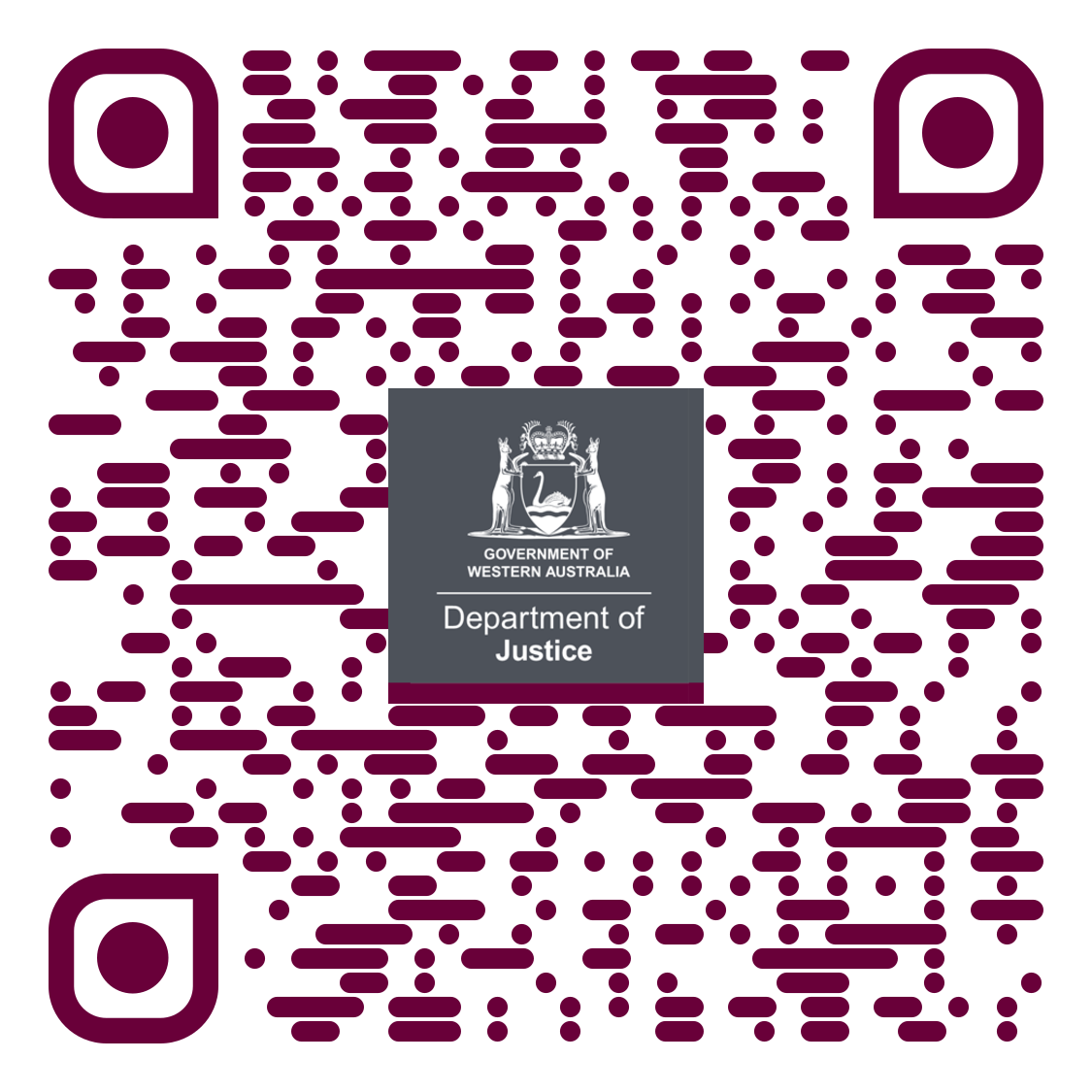
Provided by
Corrective Services Address: Postal address GPO Box F317 PERTH WA 6841 Telephone: 61 8 9264 1711 (Monday to Friday between 8.30 am to 4.30 pm) Visiting prisons or detention centre Location of a prisoner Feedback to Corrective Services
- Facebook share (Opens in a new tab/window)
- Twitter (Opens in a new tab/window)
- LinkedIn (Opens in a new tab/window)
Acknowledgement of Country
The Government of Western Australia acknowledges the traditional custodians throughout Western Australia and their continuing connection to the land, waters and community. We pay our respects to all members of the Aboriginal communities and their cultures; and to Elders both past and present.
Conjugal visits support inmates' relationships: Hargreaves
The ACT Government says Canberra is one of only two jurisdictions in the country to allow conjugal visits for prisoners.
The policy has been in place since the opening of the ACT's new prison, the Alexander Maconochie Centre.
Inmates are allowed some intimate time with their spouse or partner every two months as a reward for good behaviour.
Corrections Minister John Hargreaves says the policy aims to support prisoners' family relationships.
"One of the biggest problems of avoiding recidivism, is the restoration of the relationship between a prisoner and his partner when they come out," he said.
"If in fact that relationship on an emotional level is maintained throughout the period of incarceration, then we will actually have restored that family."
- X (formerly Twitter)
- Community and Society
- Fundamental Rights
- Government and Politics
- Human Rights
- Law, Crime and Justice
- Prisons and Punishment
- Relationships
- State and Territory Government
Model who murdered boyfriend demands ‘conjugal visits’ in prison
A mum-of-three who murdered her ex-boyfriend when he broke up with her is fighting for “conjugal visits” with her new man in prison.
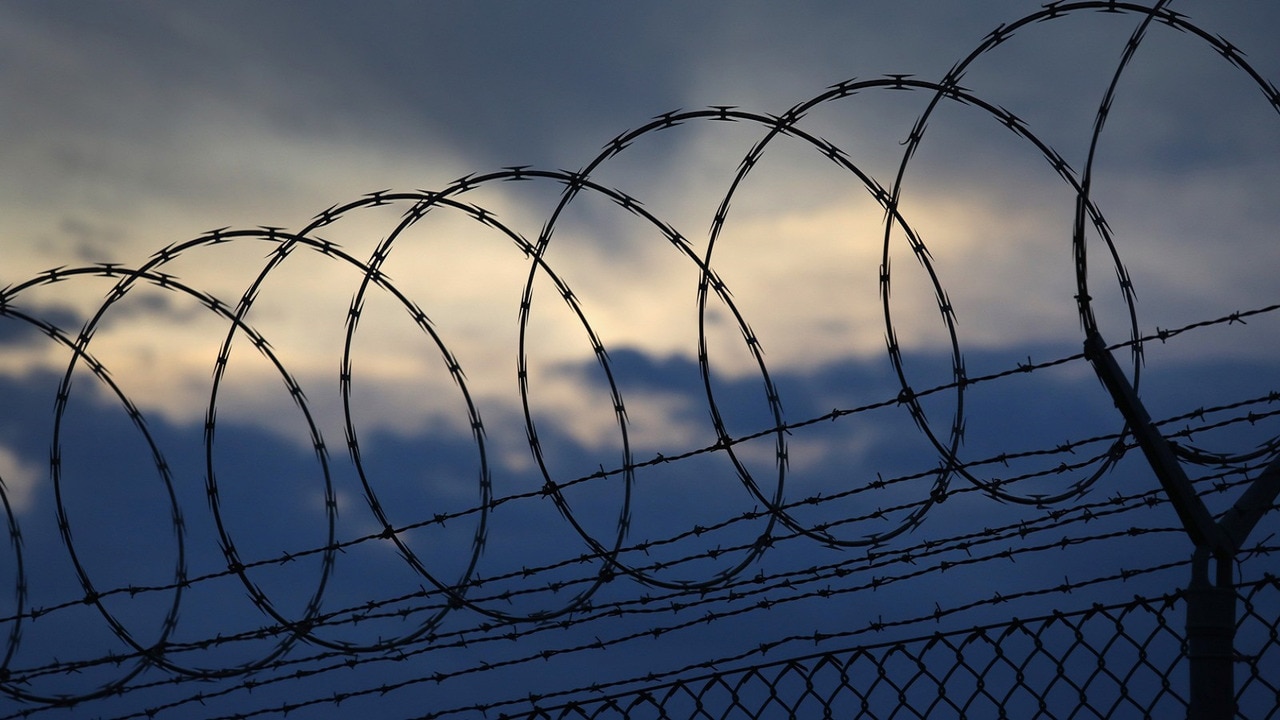
Four porn stars reveal sad Aussie sex truth

Footy fan captures ‘horrifying’ threat
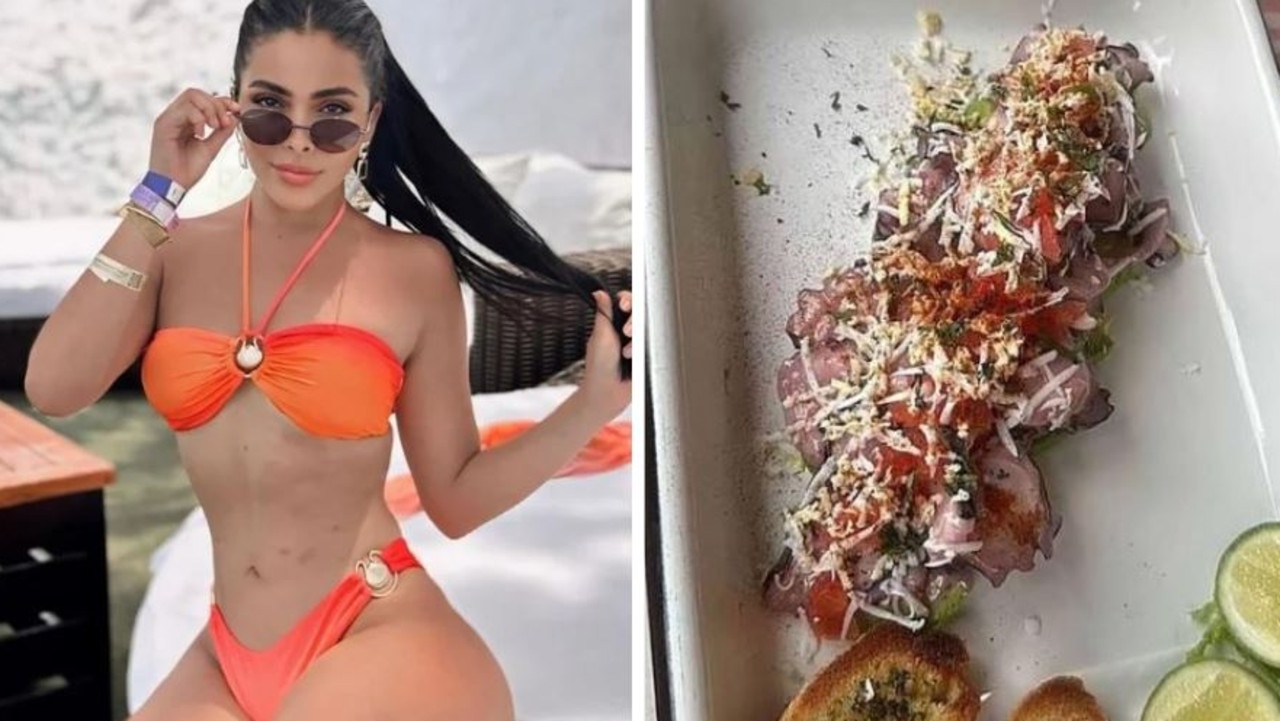
Octopus ceviche pic led to influencer’s death
A British adult model who murdered her boyfriend is now demanding conjugal visits with her new partner in prison.
Abigail White, 24, was locked up for life after stabbing Bradley Lewis, 22, to death when he broke up with her in March 2022, The Sun reports .
The self-dubbed “fake Barbie” claimed said she wanted only to scare the dad of her three children when she picked up the 17cm kitchen knife and stabbed him through the heart.
She was convicted of murder and sentenced to a minimum of 18 years .
White, who is now serving her sentence a prison in Gloucestershire, South West England, is now insisting her “needs” be taken into account and men be allowed to stay the night with female inmates.

“It has come to my attention, after recently being sentenced to 18 years, that prisons do not facilitate overnight stays for women prisoners and their partners,” she told prison magazine Inside Times .
“They should take into account and consideration our needs, and allow men and women to have overnight stays together.
“I would like to know what other prisoners think about this, as quite a few girls here agree.”
White, who boasted of making £50,000 ($A90,840) a year on a popular subscription site selling explicit content, argued with Bradley in a pub where she threw a drink in his face.
He told a friend: “I’m dead when I get home.”
White, who once messaged a pal saying, “I fully believe I am capable of killing him”, later stabbed him with a 17cm kitchen knife.
She insisted she had not realised what she had done until it was too late.
White was given life with a minimum of 18 years at Bristol Crown Court in October last year.
But Bradley’s family still don’t feel like they have justice.

His dad Steve Lewis said: “We were pleased with the verdict [of murder] but we would have liked a few more years on top.
“It doesn’t feel right really, we’re glad she’s locked up but we don’t feel we’ve got justice because we’re the ones with the full life sentence.
“People just wanted her, in a sense, to rot in hell.”
A spokesperson for the UK’s Prison Service, which runs 141 current prisons across England, Wales, Scotland and Northern Ireland explained “prisoners see family during daytime visits which are supervised by staff”.

More Coverage

Conjugal visits – where inmates spend several hours or days in private with their legal spouse, often for sexual activity – are permitted in several countries including parts of Australia and the US, Canada, France and Spain.
Not all the States and Territories in Australia recognise or permit conjugal prison visits. Victoria is the only state that permits visits as a conjugal right subject to certain rules or conditions.
This article originally appeared on The Sun and was reproduced with permission
X-rated creators have revealed what Aussie men are getting wrong when it comes to sex, and there’s a clear theme.
An NRL fan has shared disturbing footage which should shake every Australian to their core.
Police believe a beauty queen with over a million followers was tracked by her killers after she shared a snap of a unique dish online.
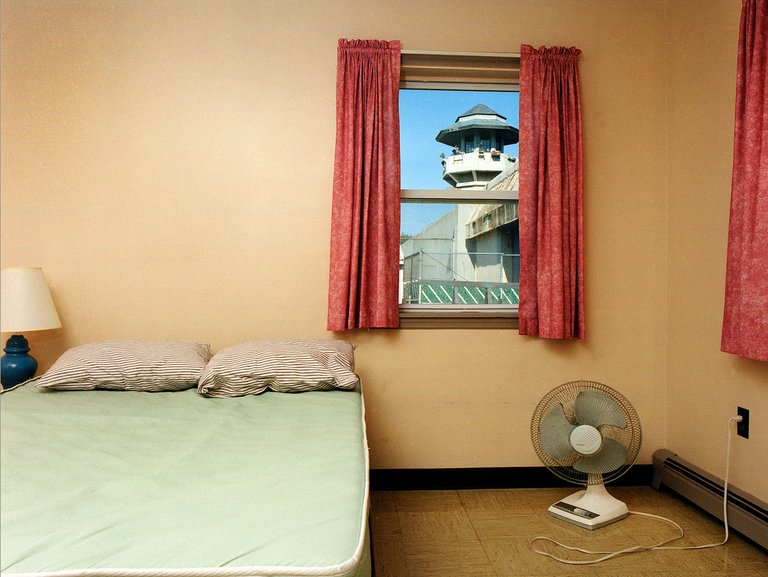
Sex, Love, & Marriage Behind Bars
What are conjugal visits really like? Incarcerated journalist John J. Lennon takes Esquire inside one of the last bastions of prisoner intimacy in America: trailers of New York.
I first heard about the trailers, prison vernacular for conjugal visits, on Rikers Island. It was 2002, I was twenty-four, and I was awaiting trial on murder charges. The guy the next bunk over in the communal dorm knew I was facing a lot of time, even if I didn’t know that. I was delusional in the beginning. We all are.
The bunkmate had just finished a dime—a ten-year sentence—for assault and was now in on a parole violation for breaking curfew, caught on a tip called in by his wife. Still, he loved her, and he loved telling me about going on conjugals with her up in Auburn, a maximum-security prison. It wasn’t just about the sex, he said. It was forty-eight hours of freedom, or close to it. Most of New York’s maximum-security prisons had them. They weren’t trailers, not anymore, but modular homes. He described the units: two, sometimes three bedrooms—the prison supplied pillows, bed linens, towels, and washcloths—a living room, a bathroom, and a full kitchen stocked with pots and pans, a coffee maker, a blender, and utensils. A wire bolted to the counter next to the sink was connected to the handle of the kitchen knife. His wife would bring clothes, cosmetics, and groceries: milk, eggs, pork chops, shelled shrimp. Glass containers weren’t allowed; neither was alcohol, not even as a makeup ingredient. Outside there was a picnic table, a barbecue pit, and a children’s play area.
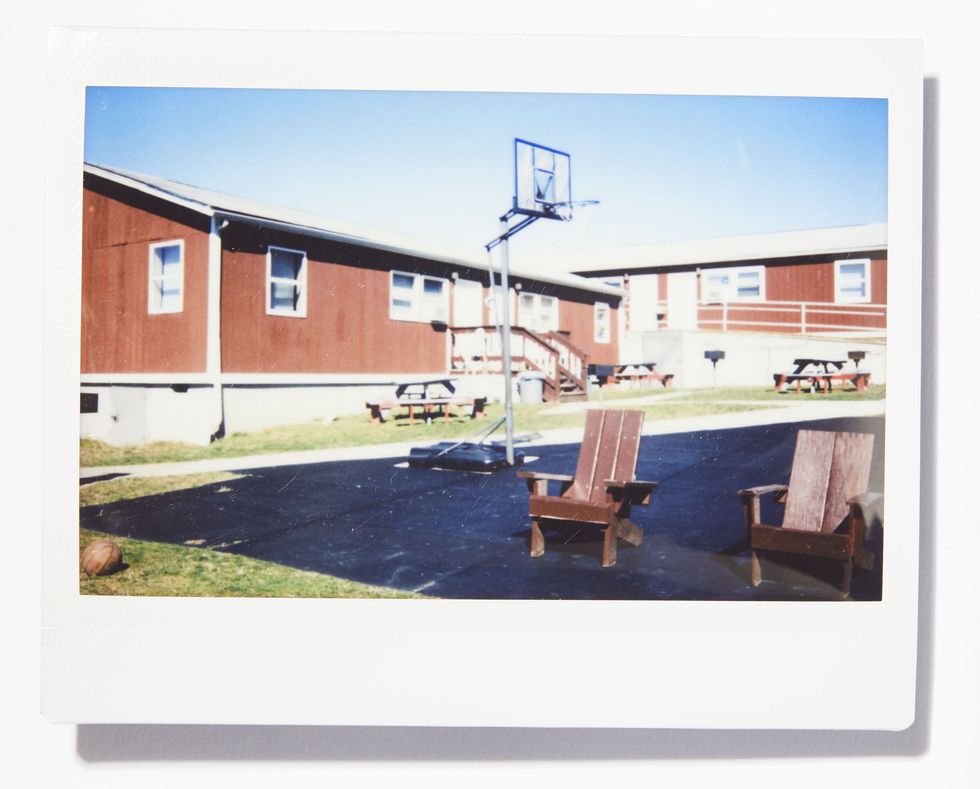
It was, the fella in the next bunk told me, an opportunity for good times, good eating, and good sex. An incentive to stay out of trouble in the hope of experiencing a touch of love.
There was a hitch: Your partner had to be your legal spouse. Close family members were also eligible, of course, and this was really the objective of these visits: to build and maintain better family ties. But that was beside my bunkmate’s point. If I was convicted, he said, he recommended I put an ad on one of those prisoner dating websites (Prison Pen Pals, Write a Prisoner), find a woman, fall in love, make it official, then head for the trailers.
In 2004, I was sentenced to twenty-eight years to life. The minimum was longer than I’d been alive. Early on, I didn’t think much about the implications for my love life. At twenty-four, I’d had plenty of sex but never a real relationship, or even healthy intimacy. Besides, there were more pressing concerns: appealing my conviction, learning how to survive in this place.
I first saw the trailers at Clinton Correctional, a maximum-security prison a few miles south of the Canadian border, in Dannemora. By then I’d learned that New York’s Department of Corrections and Community Supervision didn’t actually call them conjugal visits. Only Mississippi did. While the word conjugal simply means “related to marriage,” these visits began to carry lewd implications, and other states opted to rebrand: In California, it was known as “family visiting.” In Connecticut and Washington, they were referred to as “extended family visits.” In New York, it was, and still is, called the Family Reunion Program, or FRP.

In 2005, I had my first FRP visit—with my mother and my aunt. My aunt cooked bacon and eggs in the morning, grilled porterhouse steaks and tossed salads for dinner. We sank into the soft couches, ate, and watched Law & Order reruns, oddly Mom’s favorite show. We talked until interrupted by the muffled screams of a couple through the wall of the attached unit. We laughed awkwardly, avoiding eye contact, and I felt kind of jealous. Three times a day, a phone in the unit rang. I picked up, spat my last name and identification number into the receiver, then stepped outside and waved to the watchtower guard. That count was one of the only reminders of prison.
When I returned to my block, guys asked how the conjugal had gone. Great, I said. When I mentioned it was with my mother and my aunt, they sort of nodded, like, Oh, that’s cool, too. I loved visiting with my family. But I did start to think about what it would be like to be with a woman again.
.css-f6drgc:before{margin:-0.99rem auto 0 -1.33rem;left:50%;width:2.1875rem;border:0.3125rem solid #FF3A30;height:2.1875rem;content:'';display:block;position:absolute;border-radius:100%;} .css-1aglugu{font-family:Lausanne,Lausanne-fallback,Lausanne-roboto,Lausanne-local,Arial,sans-serif;font-size:1.625rem;line-height:1.2;margin:0rem;}@media(max-width: 48rem){.css-1aglugu{font-size:1.75rem;line-height:1.2;}}@media(min-width: 64rem){.css-1aglugu{font-size:2.375rem;line-height:1.2;}}.css-1aglugu b,.css-1aglugu strong{font-family:inherit;font-weight:bold;}.css-1aglugu em,.css-1aglugu i{font-style:italic;font-family:inherit;}.css-1aglugu:before{content:'"';display:block;padding:0.3125rem 0.875rem 0 0;font-size:3.5rem;line-height:0.8;font-style:italic;font-family:Lausanne,Lausanne-fallback,Lausanne-styleitalic-roboto,Lausanne-styleitalic-local,Arial,sans-serif;} Trailer visits were never perfect. Sometimes they were hard. But in many ways, they felt like rehearsals for life on the outside.
I got by with my hand and my memories, with the occasional assist from Buttman or High Society. Many of us who’ve been locked up all these years try idiosyncratic methods to pleasure ourselves. Some use a Fifi—a rolled towel with a plastic bag stuffed in the crevice; inside the bag is a rubber glove lubed with Vaseline that can be warmed in a hot pot of water, if one prefers. The crevice can be tightened or loosened by a strap wrapped around the rolled towel, creating different sensations. Fucking Fifis was an intimate ritual for one of my neighbors. At night he hung a curtain across his cell bars, prepped his Fifi, rolled the whole thing up in his mattress—he said it was more like a big-booty girl that way—laid out a few porno mags, and started thrusting.
But I wasn’t looking to hump a Fifi for the next twenty-five years.
Married men in the joint who went on conjugals seemed to have the most meaningful lives: They worked out, they went on visits, they sported crispy new sneakers and polo shirts with the horse, as if to say to the rest of us, I got a lady who loves me, and I got more status than you. At least, that’s how I took it. Every few months, they disappeared—most men kept their conjugal dates to themselves to avoid attracting envy—but we all knew where they’d gone. They came back to the cellblock with hickey-covered necks, looking pleasantly tired. I decided that was how I wanted to serve my sentence.
Mississippi State Penitentiary, of all places, was the first facility in the U. S. to offer conjugal visits, in the early 1900s. Also known as Parchman Farm, the segregated prison functioned as a revenue-generating plantation that produced cotton, cattle, pork, and more; its prisoners performed all the hard labor. To incentivize their work, administrators began arranging for prostitutes to visit on Sundays, and prisoners slept with them wherever they could—tool sheds, storage areas, the barracks. At first, only Black prisoners were allowed to participate, and for deeply racist notions “about Black men’s allegedly voracious sexual natures and appetites,” says Heather Ann Thompson, author of the Pulitzer-prize-winning history of the Attica uprising, Blood in the Water, “that Black prisoners could be forced to work even harder not just under threat of the lash but also, due to their savage nature, the promise of sex.”

Starting around 1940, all of Parchman’s prisoners were able to participate, regardless of race. By the late fifties, prostitutes were banned, replaced by prisoners’ spouses, common-law wives, and female friends. In 1972, the program opened to the facility’s female prisoners. Still, the system was marked by prejudice. “The most important question concerning a program of conjugal visiting,” wrote Columbus Hopper in his 1969 study of Parchman, Sex in Prison, “is whether it helps to reduce the problem of homosexuality in prison.” Hopper was the leading conjugals researcher of his time, and the “problem of homosexuality” seems to have been one of the main forces behind his advocacy. Truth is, in my twenty-one years of incarceration, I’ve never been sexually assaulted or witnessed that kind of assault.
New York’s first FRP began in 1976, with five 12-foot-by-70-foot trailers in a former cow pasture at Wallkill Correctional. Attica got its trailers in 1977, six years after the prisoner uprising for more humane treatment that, when law enforcement took back the prison, left thirty-nine dead. In the first eighteen months of Attica’s FRP, 1,179 prisoners participated.
By 1993, seventeen states allowed some version of extended family visits. That year in New York, 12,401 family members attended FRPs across the state. “The effectiveness of the program is beyond dispute,” the prison commissioner wrote in an op-ed around that time.
Data supports the former commissioner’s claims. According to a recent literature review, prisons that allow conjugal visits have better disciplinary records than those that do not. What’s more, studies have determined that released prisoners with an established relationship have a much better chance of not returning to prison. (In 1980, New York’s corrections department published findings suggesting that participation in the program decreased recidivism rates by as much as 67 percent.)
Yet since the start of such programs, fierce resistance has followed. By the early nineties, the era of mass incarceration was fully under way, and across the country, prison programs that incentivized good behavior—furloughs, work release, college, conjugals—were on the chopping block. Why, the thinking went, should we coddle criminals with taxpayer money? (It’s worth noting that FRP upkeep is paid for in part by prisoner fundraisers.) And don’t conjugals present one more way to introduce contraband?
As early as 1969, when Hopper published his findings on Parchman, conjugal visits were available in Chile, Ecuador, Japan, Mexico, Costa Rica, and the Philippines. Today, that list includes Qatar, Argentina, Brazil, Belgium, Sweden, Spain, France, Russia, and Saudi Arabia.
The United States has shifted in the opposite direction. In the eyes of the law, conjugal visits are a privilege, not a right. The Supreme Court has repeatedly upheld prison administrators’ latitude to limit prisoners’ rights, including visitation, writing in 2003 that “freedom of association is among the rights least compatible with incarceration.” In 2014, Mississippi did away with its program. “There are costs associated with the staff’s time,” the state’s prison commissioner said at the time. “Then, even though we provide contraception, we have no idea how many women are getting pregnant only for the child to be raised by one parent”—as if such family planning were his call to make.
Today, only four states allow conjugal visits—New York, California, Washington, and Connecticut—though when Covid came, Connecticut’s program was suspended, and it has yet to return. Federal prisons don’t offer the privilege. New York’s program has been a success: FRP is offered at twelve of its fifteen maximum-security prisons and eleven of its twenty-six medium-security prisons. Since 2011, same-sex couples have been able to participate. Yet each year over the past decade or so, Republican state senators have introduced a bill to eliminate FRP. Conservatives preach the importance of a solid family structure. Why would they want to sabotage prisoners who are trying to build and maintain theirs?
By 2009, I was in Attica; my appeals had been denied. I was thirty-two and lonely. I’d spend hours each day watching the tiny TV in my cell. The Bachelor was my favorite show—a glimpse of intimacy, however stage-managed, and a break from my bleak reality. I felt like I was squandering an opportunity by not putting myself out there. I told Mom what the guy on Rikers Island had suggested, and she put an ad on the prison dating website Friends Beyond the Wall.
Danielly was a year younger than me and lived with her teenage son in a housing project on the Lower East Side. “I’m Dominican, and brown. Do you like that?” she wrote. Yes, yes, I loved it! In an early letter, I brought up the trailers, told her to imagine an uninterrupted weekend together in a sort of cabin, no cell phones, no distractions—just us. She didn’t need to be sold. Her mom had married a guy who’d done time, she told me, and she remembered visiting those little homes in the prison as a young girl.
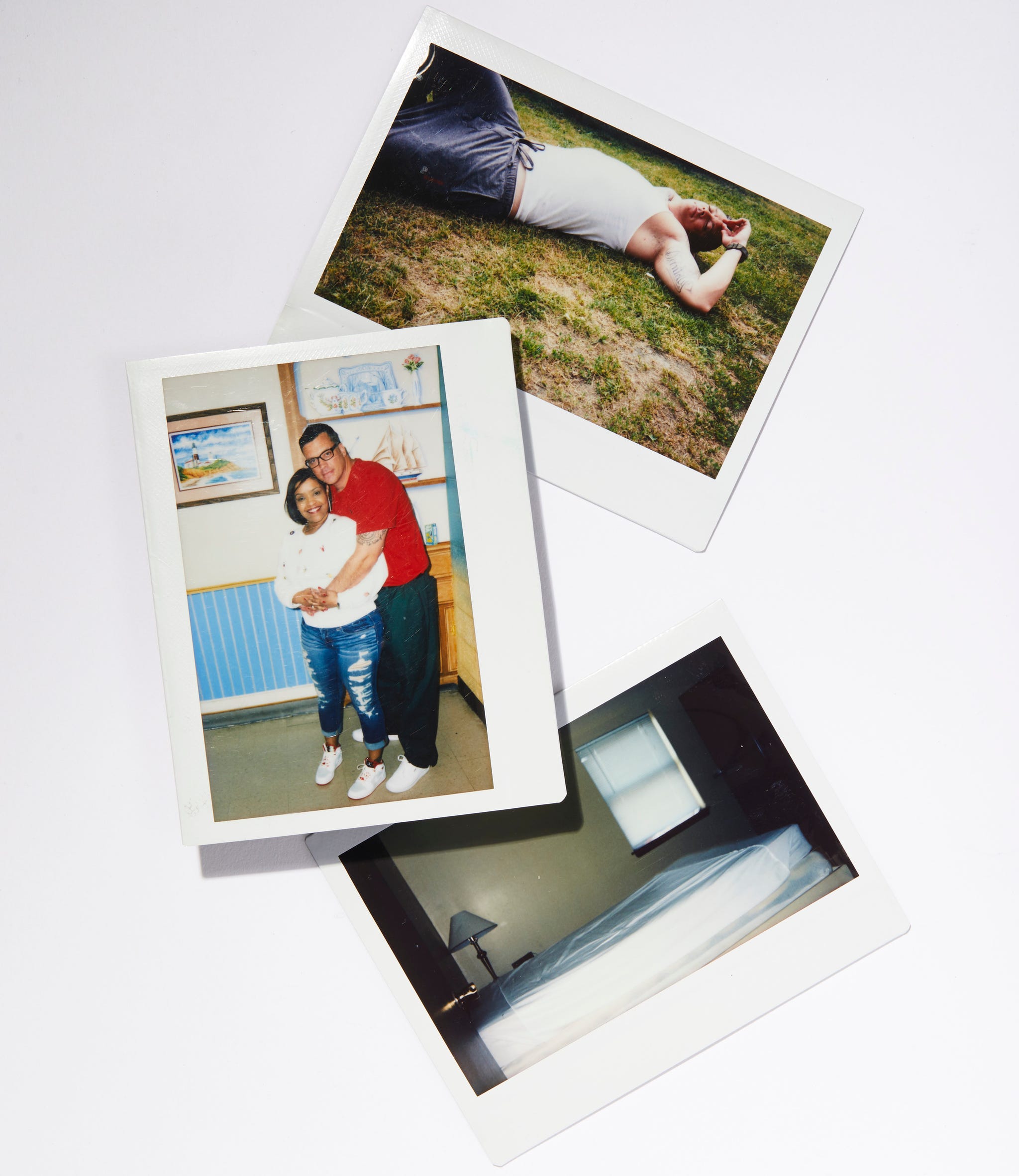
Danielly started visiting me at Attica. She was my type—curvy, full of attitude and affection. We had the kind of chemistry that made my stomach flutter. But I soon learned that my type was much harder to handle on the inside than it had been when I was on the outside. The guy she’d described as her ex-boyfriend was more like her current boyfriend. When I called her, she sometimes wouldn’t answer. I was left lovesick, and that’s no way to live in prison. So I let her go.
In January 2011, I started corresponding with Raina, a California blonde, thirty-nine, who’d never been married and had no kids, and it wasn’t a dealbreaker that I’d killed a man. She had a great sense of humor, and while she’d known darkness in her own life, she’d needle anyone who took theirs too seriously. I was hooked. She was emotionally intelligent, we spoke the language of recovery, and our relationship felt safe. She moved across the country for me. One day in 2012, in Attica’s visiting room, I proposed to her, and she said yes. Six months later, we joined a few other couples in a small room with a Goofy mural painted on the wall and Attica’s town clerk seated at a table, and we got married.
By 2014—after a series of applications, denials, appeals, and interviews, including one in which Raina was told I didn’t carry any sexually transmitted diseases—we had our first FRP date.
Two days beforehand, I had to piss in a cup under a guard’s gaze for my drug screen. Then again the day of, and again after I came off the trailer. Most of the work was on Raina: shopping, traveling, then getting processed, food pushed through an X-ray machine, gloved fingers sifting through her panties and K-Y jelly.
The corrections officer escorted a handful of us through the Attica lobby, a part of the prison I had never seen before. Gates opened and closed, and we walked to the FRP compound. A fence enclosed the five red-sided homes, situated so that the rest of the prison couldn’t see in. Though the watchtower guard kept a close eye.
Sitting on the couch, looking around, I felt . . . joy. In the system, you’re always waiting, and never for anything good: trial, sentencing, transfers, getting cuffed and shackled, always in a cell or a bullpen or on a bus eating bologna sandwiches. Now I didn’t know what to do with myself, and I loved it. I got up from the couch, turned on the stereo, then walked outside on the grass, sat on the children’s swing, went back inside. I grabbed the remote, turned on the flat-screen television, flipped through the stations. To do whatever I wanted, and to be waiting for my wife so we could do whatever we wanted—I felt giddy. Through the window I watched my neighbor in his kitchen as he boiled the silverware—forks, (butter) knives, a spatula, a ladle, all metal and engraved with tracking numbers—in one pot of water, and added a few drops of scented oil to another, to perfume the place. Finally, I heard one of the guys yell, “They’re here!”
A corrections van with blue-tinted windows pulled up, and the family members got out. A little boy ran to his father and jumped in his arms. And there was Raina. The CO let me help her with her luggage, which was in a container marked with our unit number.
As soon as the door of our unit closed, we threw the groceries—including cuts of filet mignon and A.1. sauce—on the table and started awkwardly kissing. As we began to undress, there was a knock on the door. Raina put on a shirt and I cracked the door. It was the CO, who just needed our container. It was like that, the conjugals; they were such a departure from regular prison life. Even the staff interactions were all good.
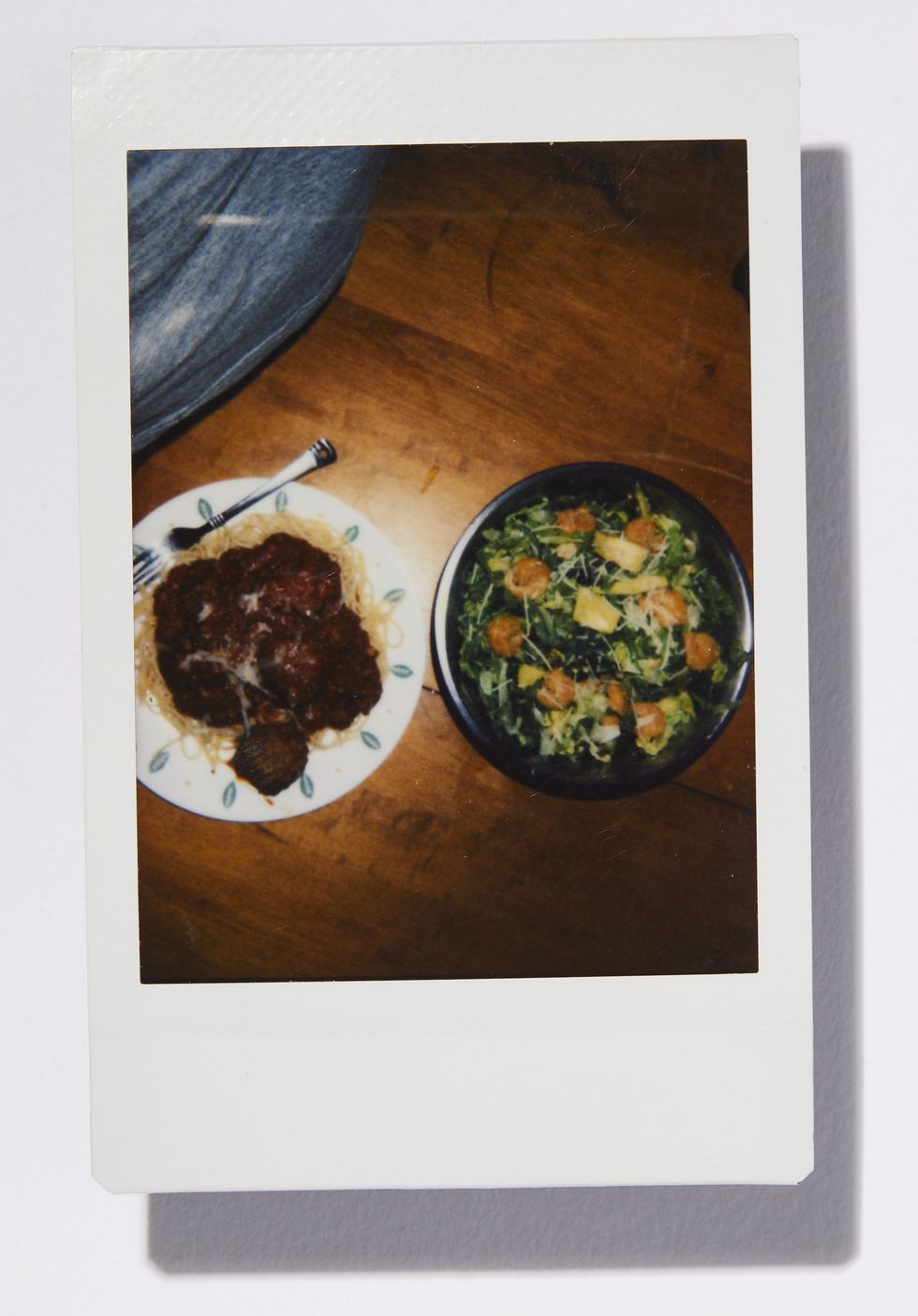
Raina and I got back to it. It was my first time in eleven years, so I figured I’d finish fast. But it was the opposite. We went at it for a while—soft, hard, slow, fast, this way, that way—and nothing seemed to bring either of us closer to climax. It was like I’d never touched a woman before. It felt weird that nobody else was watching us. I eventually pulled out and brought myself to ejaculation.
On some level, we hadn’t expected the first time to be amazing. Though it’s hard to make bad sex better, we had to try. We loved each other. We went on six more FRP visits, but the situation didn’t improve. Our issues were less about friction and more about fantasy, or the lack thereof.
Danielly had sent me letters over the years since we’d first met, none of which I’d replied to. But in 2015, as my relationship with Raina was coming to an end, I finally wrote back, explaining my marital woes. Danielly replied that I never should have gotten married in the first place, that she was my soulmate. She said she was still on and off with her boyfriend, but he didn’t matter. If I got divorced and married her instead, she’d come to Attica and fulfill all my fantasies.
I divorced Raina and proposed to Danielly.
In October, we got married by the same Attica town clerk who’d officiated the last time. The Goofy mural was gone. We posed for our wedding picture in front of a seascape of sea lions and colorful fish. Danielly looks sad in the photo, barely smiling. She’d wanted this day to be so much more special than it was.
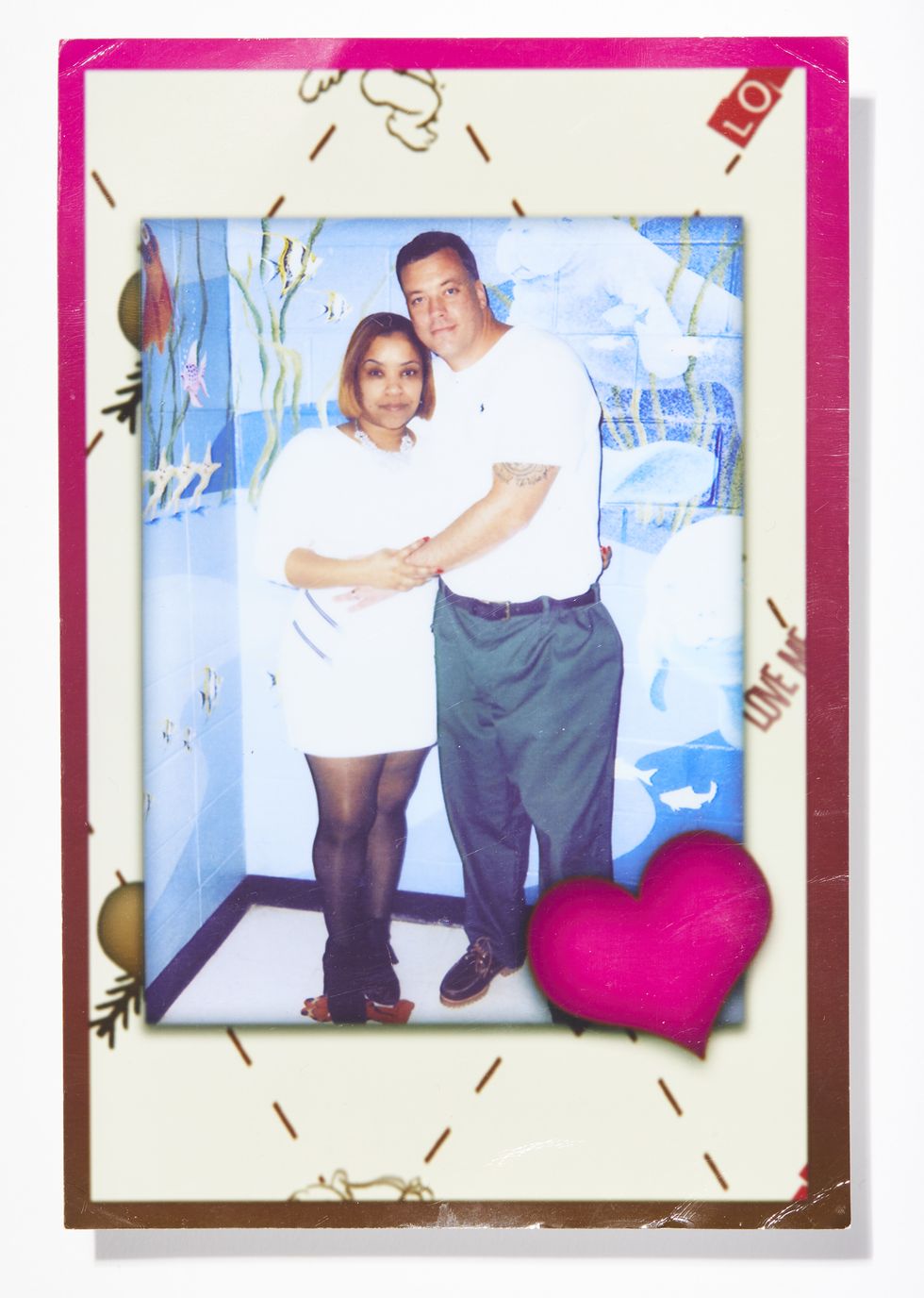
Afterward, I bribed a CO with a few packs of Newports to let the cellblock’s tattoo artist come into my cell, and with a needle made from an uncoiled lighter spring powered by a repurposed beard-trimmer motor, he inked danielly on the inside of my upper arm in looping script. Once she ditched the boyfriend for good, she had my name inked on her forearm. We craved each other. Our kisses, deep and long and wet, always felt like good sex.
I wanted to transfer to Sing Sing, forty miles north of New York City—among other reasons, it would take Danielly an hour by train, as opposed to the eleven-hour bus trip she took both ways to visit me at Attica. But Attica was a disciplinary prison, rife with violence; the number of prisoners on good behavior was low, the FRP waitlist short. You could book a spot every forty or fifty days. At Sing Sing, the wait was closer to ninety days. I weighed the pros and cons. Con: waiting twice as long to be together. Pro: saving Danielly the hassle of a big trip to the middle of nowhere, which would probably mean I’d see her more often.
I submitted my paperwork, got approved, and transferred in November 2016.
In February, we had our first FRP date. The compound was pretty much the same as the one at Attica, but at Sing Sing we got a Polaroid camera and twelve blank photos. Some couples went into the units and did not come out for the allotted forty-eight hours. Others were more social. Me and my friend Andy Gargiulo—convicted in 2006 of killing his reputed mobster brother-in-law; we’d had the same lawyer—would sometimes coordinate our FRP visits. He was a lot older than me, around eighty, but we got along. So did our better halves. His wife brought the best Italian food in Brooklyn—cannolis, fresh mozzarella, and tender veal—and when the weather was nice, the four of us would sit outside and barbecue.
Danielly was provocative, and that turned me on. We argued; we canceled visits on each other. We often had angry, shit-talking sex. Sometimes we played nice, but she’d never let it get to my head. “Boy,” she’d say, “you have so much to learn about women.” We couldn’t have sex for the entire forty-eight hours, but it sometimes felt like we were trying.
Intimacy came in other forms. She introduced me to ASMR; I brewed Bustelo for her and microwaved the half-and-half so it wouldn’t cool off the coffee too much. “Coffee,” by Miguel, became our song. We watched The Notebook, and she recited her favorite lines. We watched Warrior, and when Tom Hardy’s character hugs his drunk father, played by Nick Nolte, Danielly comforted me as I cried.
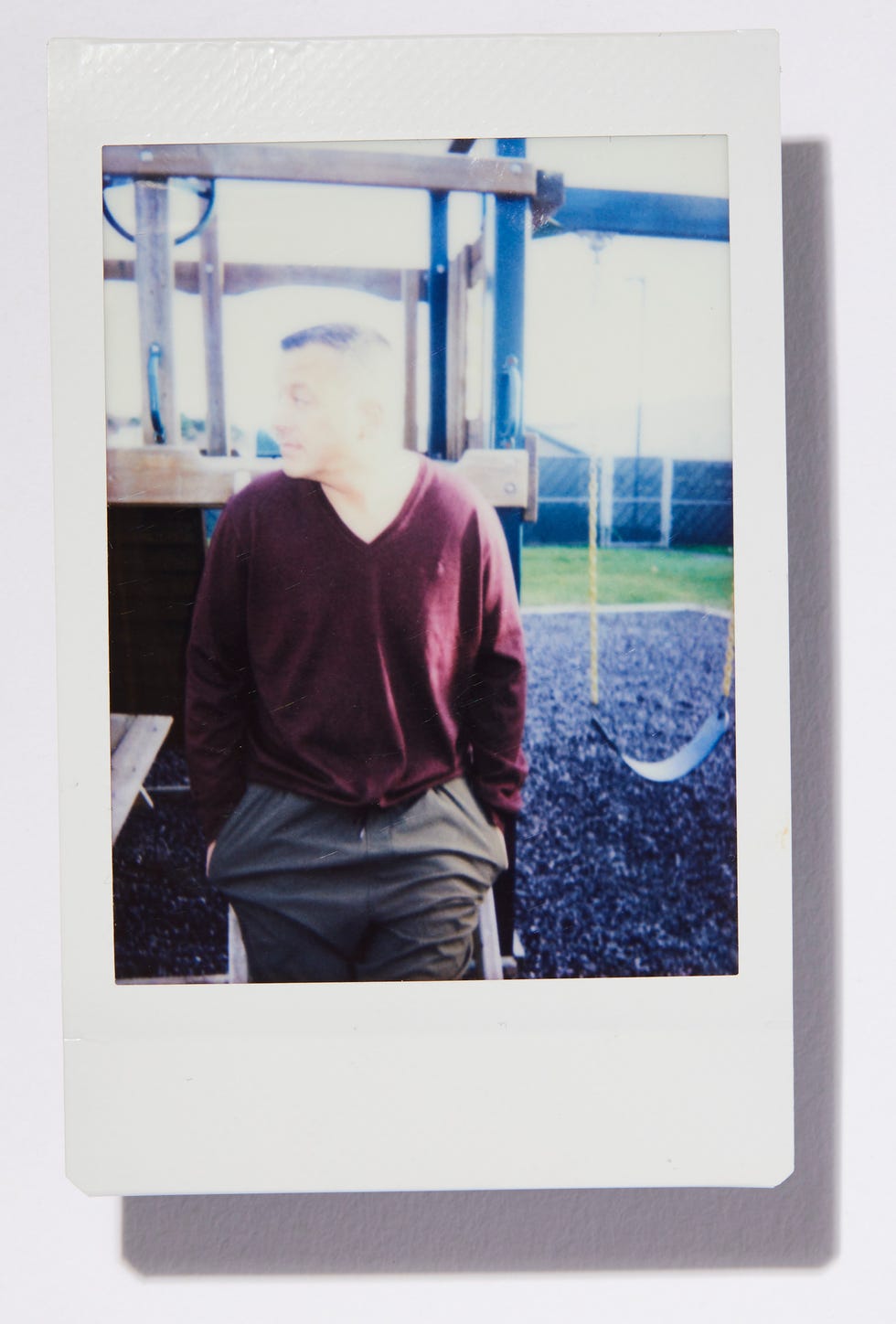
I know now that our relationship wasn’t healthy. My moments of joy were outweighed by my jealousy and anxiety. I’d get annoyed if she didn’t read my latest article. “You’re all into yourself and your career,” she’d say. “Women don’t like that, bro!” Or “I fell in love with the guy at Attica, before he became the writer.” That one hurt. But it’s not like I’d ask about her job as a nurse at a Bronx clinic. She’d want to talk about our future, and I’d urge her to stay in the present. She’d storm off into the bedroom, slam the door, and curse me out in rapid-fire Spanish. Well, I’d think, this is life.
By March 2020, our relationship was rocky. But for the first twenty-four hours of our first FRP in more than a year, we were getting along. As we prepped lunch, a knock came at the door. It was the security captain. Because of Covid, our visit was over, along with our last shot at rekindling.
By the time FRP visits were restored, a year and a half later, I’d been transferred to Sullivan Correctional, in the southern Catskills. Danielly came up twice. But too much time had passed, and other relationships had formed: hers with somebody else, mine with my career. Becoming a journalist in the joint brought its own stress, and my anxiety worsened; things like pissing in a cup with a guard peeking seemed impossible. Recently, we divorced.
Would I have been better off not having experienced intimacy for the past twenty-one years? Would Raina and Danielly have been better off never having met me? I’ve since realized that in both relationships, I focused more on the affection I was getting than the affection I was giving. All this time spent living in my head, confined to a six-foot-by-nine-foot cell, has rendered me less expressive and more emotionally stuck. My thoughts would bounce around my brain but never make it out of my mouth, which left Raina, then Danielly, feeling neglected. The time I used to spend writing love letters I now spend writing articles. Sometimes I feel like I took the two of them for granted. There’s an immense effort, this leap toward love in which the only physical manifestation comes in the form of conjugal visits. And it’s exerted not by the prisoners but by our partners. They wait, they shop, they lug, they travel, they get gossiped about by friends and family and insulted by COs.
Trailer visits were never perfect. Sometimes they were hard, especially at the end—me returning to prison, my woman going home alone. But in many ways, they felt like rehearsals for life on the outside. I believe that because of my experiences with conjugals, when I do get out, I’ll be more sensitive to the feelings of those closest to me. “It remains utterly and inescapably true that to be a human being is to need to be connected to, to bond with, and to be nurtured by other human beings,” Heather Ann Thompson told me. “Serving one’s sentence does not change that.”
So I’m single now. Middle-aged, too. Sometimes I imagine the kind of woman I’ll attract when I’m on the outside, and I wonder if I’ll resent her because she didn’t fall for me when I was on the inside. Which is absurd, and I know I need to work that shit out. But it also feels like a nod to the women who’ve loved me, a thank-you to all the partners who’ve sacrificed so much to share their love with those of us who are locked up.
I think about a moment Danielly and I shared with Andy and his wife, who was wearing Prada glasses and a perfume called La Vie Est Belle. The sun was bright; we sat at the picnic table, eating the best of both kitchens. Andy was talking about a TV show he watched in his cell—maybe it was America’s Got Talent —and Danielly told him how she also loved that show. While recalling the final performance of a child singer who’d recently won, Andy choked up. Right there at the wooden table, surrounded by the thirty-foot concrete wall and the guard with the AR-15 perched in the tower. Danielly teared up, too. “He gets emotional on these visits,” Andy’s wife said in a tough Brooklyn accent, smiling. More than the sex, it’s moments like these—simple, safe, and endearing—that have provided me with what prison has stripped away: a taste of intimacy.

@media(max-width: 73.75rem){.css-1ktbcds:before{margin-right:0.4375rem;color:#FF3A30;content:'_';display:inline-block;}}@media(min-width: 64rem){.css-1ktbcds:before{margin-right:0.5625rem;color:#FF3A30;content:'_';display:inline-block;}} Esquire Select Exclusives

What Happens When Your Longtime Therapist Dies?

How (Not) To Grieve

What Is Successful Nonmonogamy Anyway?

American Tragedy: The Death of an Alabama Pastor

Is “Doomslang” Making Us All Numb?
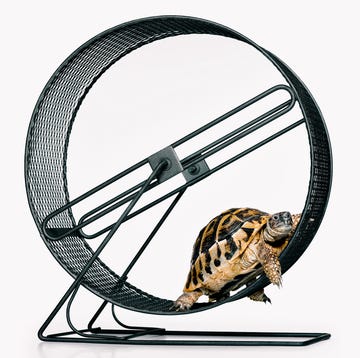
Is It Even Possible to Become More Productive?

The All-American Father

What If Profound Lovesickness Isn’t Romantic?

The Redemption of Al Sharpton
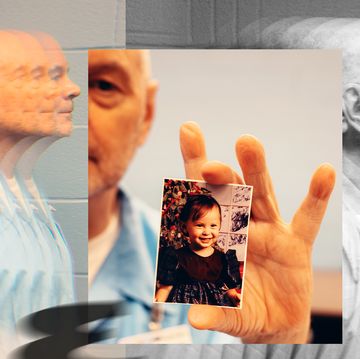
What Really Happened to Baby Christina?

Inside My Mid-Life Crisis

IMAGES
VIDEO
COMMENTS
A conjugal visit is a scheduled period in which an inmate of a prison or jail is permitted to spend several hours or days in private with a visitor. The visitor is usually their legal spouse. ... Australia. In Australia, conjugal visits are permitted in the Australian Capital Territory and Victoria. Other ...
The key aims of conjugal visits include preserving an inmate's family ties, promoting the inmate's reintegration into society on release, curbing recidivism and lessening prison violence. Victoria is the only state or territory in Australia which allows conjugal visits to prisoners. Legislation. Section 38 of the Corrections Act 1986 states:
In Australia, Victoria is the only state in our nation that permits conjugal visits in Australian prisons subject to the conjugal visit rules. Section 38 and Section 37 Corrections Act 1986 (Vic) permits these sorts of visits for prisoners within Victoria, subject to conditions.
A conjugal visit refers to a period of time inmates are permitted to spend with a visitor in private, outside of the supervision of prison authorities. This visitor is usually the legal spouse of the inmate, but it can also be other members of their family or even friends. In Australia, conjugal visits are permitted only in Victoria.
THE IDEA of conjugal visits irks a lot of people. Someone who knows this better than most is 24-year-old Perth woman, Bree-Anna. When her fiance Travis was sentenced to 36 months in a WA prison ...
Conjugal visits have been shown to help in maintain family ties and reduce rates of reoffending. However, Victoria is the only Australian jurisdiction to permit them. ... Professor Levy explained via email that along with the Victorian prisons, the Cadell Training Centre in South Australia allows intimate partner visits. "Anywhere else it can ...
Conjugal relates to a marriage or a relationship between a couple, and this includes sexual relations. A conjugal visit allows the inmate and a visitor to engage in intimate extended contact at a designated time. Conjugal prison visits are pre-arranged, and the inmate spends time in private with their visitor in a motel-type setting.
Through 'Make Conjugal Visits Legal in Western Australia/Worldwide' she hoped to bring attention to the issue and network with others in similar situations. Her plan was to let the cause percolate ...
Imprisonment impacts on lives beyond the prisoner's. In particular, family and intimate relationships are affected. Only some countries permit private conjugal visits in prison between a prisoner and community living partner. Aims. Our aim was to find evidence from published international literature on the safety, benefits or harms of such visits.
Only some countries permit private conjugal visits in prison between a prisoner and community living partner. Aims: Our aim was to find evidence from published international literature on the safety, benefits or harms of such visits. Methods: A systematic literature review was conducted using broad search terms, including words like 'private ...
A three-year prison bonk ban has finally been lifted. The Herald Sun can reveal conjugal visits have resumed across Victoria's prison system. The sex visits were suspended in early 2020 to stop ...
Conjugal rights are usually exercised through visitation for prisoners. A conjugal visit is a scheduled period in which an inmate of a prison (or jail) is permitted to spend several hours or days in private with a visitor, usually his or her legal spouse during which both parties may engage in sexual intercourse.
The ACT has become the second jurisdiction in Australia to allow prisoners who behave to receive conjugal visits. The Alexander Maconochie Centre's conjugal visits policy, which includes same-sex ...
A prisoner can normally have up to 1 hour of visiting time each week in addition to time with their lawyer. Visits may be contact or non-contact. Virtual Personal Visits (VPVs) are also available. New visitors seeking a VPV must go through the same application process as visitors to a centre.
WA prisons do not allow conjugal visits. Visitor Code of Conduct Show more. When participating in visits, visitors and prisoners need to maintain an acceptable standard of behaviour. ... The Government of Western Australia acknowledges the traditional custodians throughout Western Australia and their continuing connection to the land, waters ...
It's the only state to allow conjugal visits, meaning prisoners get a few precious hours to have sex with their partners. Victoria is the only Australian state that allows conjugal visits under ...
The findings of this study reveal that (a) female inmates perceive conjugal visits as a significant and positive program in the prison, (b) these visits ease their pains of imprisonment and help ...
A conjugal visit is a scheduled period in which an inmate of a prison or jail is permitted to spend several hours or days in private with a visitor. The visitor is usually their legal spouse. The generally recognized basis for permitting such visits in modern times is to preserve family bonds and increase the chances of success for a prisoner's eventual return to ordinary life after release ...
The ACT Government says Canberra is one of only two jurisdictions in the country to allow conjugal visits for prisoners. The policy has been in place since the opening of the ACT's new prison, the ...
Conjugal visits - where inmates spend several hours or days in private with their legal spouse, often for sexual activity - are permitted in several countries including parts of Australia and ...
In 1993, 17 states had conjugal visitation programs. By the 2000s, that number was down to six, with only California, Connecticut, Mississippi, New Mexico, New York, and Washington allowing such visits. And by 2015, Mississippi and New Mexico eliminated their programs. For the most part, states no longer refer to "conjugal" visits.
In 1972, the program opened to the facility's female prisoners. Still, the system was marked by prejudice. "The most important question concerning a program of conjugal visiting," wrote ...
Zero fed prisons with conjugal. Knew guys from State prisons that had children while incarcerated (CA) and missed the conjugal visits. Plenty of guys in feds ... conjugally visit with staff. Tex Watson had many of them. Real in NYS but only in certain facilities. Real in Cali call them family visit.